#there is definitely more to the story but again for the sake of brevity
Note
!! for the character intro game
Tysm for the ask!!!
This definitely didn't take me over 10 days to get to lmao
From this ask game <2
Name: Zachary Chang
Pronouns: He/Him 🏳️⚧️
Zach!! He's my first ever whump OC and also, I love him cuz he sucks so much <2 my favorite OC with problems :D He's appeared in this drabble which you could read. if you want. it's a little old I'm prolly never gonna continue it so
Zach has like, three main traits I would say? Overwhelming arrogance, yet also deep rooted self loathing. An extreme reluctance to make friends or any meaningful connection. And boredom. So, so much boredom.
Pretty much he had a kinda shit childhood. Manipulative parents + a pervasive feeling of otherness growing up kinda turned him off from desiring any sort of meaningful connection because whenever he was vulnerable, it was used against him. Also he developed a lot of self loathing issues, and to cope with that he leaned into ego. He's not better than anyone else, in fact he's rotten to the core, but he's the only one who sees the world as it really is, in his mind.
And the world is not only cruel and selfish, but it is deeply, utterly, boring. And Zach truly thinks he's tried everything (he hasn't), and nothing is fun to him. Nothing has brought him joy. I will say tho, he is the type of guy to try a new hobby and give up when he isn't amazing first try. Zach also has a lot of overconfidence in his prediction skills- and he's not right 100% of the time, but he's right enough of the time that he believes his prediction ability is practically infallible, and he takes that as further proof that everything is too boring and predictable.
Most of the time he's looking for something new to do, for temporary excitement or serotonin. The thing is, he's quite callous, and he doesn't really care about people or their happiness. He's a bit nihilistic, he thinks that whatever he does, it doesn't really matter in the end because everyone will be dead, eventually, and the universe will move on like nothing happened.
And then that's how he decided that becoming a villain might be fun to try. So he decided to start by majorly fucking with a random person of his choice! That person was Tào Lan, and her friends, Grace, Amir, and Declan. They formed a vigilante group, so Zach thought it would be fun to mess with them.
He started by like, kidnapping Declan and sending a letter and a videotape to the group like "hey I kidnapped your friend, if you don't rescue him by this date, I'll kill him!"
From then on, he had like a couple skirmishes with the group as they tried to rescue Declan and defeat him. First one was at an abandoned warehouse, and he set it on fire with everyone inside, and Amir ended up dying in that. Which was extremely traumatizing for Lan and Grace. To the point that neither of them could organize another rescue attempt. They tried, but most of their attempts ending up being fruitless very early on.
And then the date passed, and they got a picture in the mail of Declan's corpse.
That made Lan and Grace decide that they had to do something immediately. They were gonna kill Zach, for everything he'd done. But that fight didn't exactly go well, as it ended in Grace's demise.
Which only left Lan. And she used to be happy, you know? She had her best friends with her, and she felt like she could do anything with them at her side. But now she felt horribly empty and hopeless, though she was learning that she could do still anything, in their memory.
Once she recuperated physically from her last fight, she was determined to finally kill Zach. And this time, she succeeded.
Well, almost. At the last minute, she changed her plans. She wasn't going to kill him, but she was going to make him regret being alive.
Zach planned for a lot of things, but he didn't exactly plan for being tortured. He didn't think Lan would go that far! But she did, and he suffered for it. He was suffocatingly trapped in a cycle of suffering, and no matter what, Lan just wouldn't let him die. He knew he'd die eventually, but it was taking too long-
And then someone saved him. An old classmate, Erika Sanchez, found him and got him out of the abandoned prison he was being held captive in. And now he's crashing at her house :) She doesn't know about his crimes, and he's not about to tell her. There's a bit of an angsty half recovery arc <2
(Zach on the left, Lan on the right)
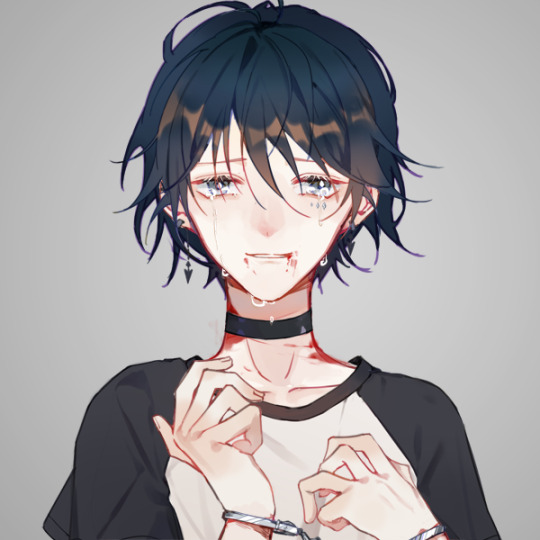

@whump-queen <2
#whump#whump ocs#villain whump#my ocs <2#oc zach#oc lan#there is definitely more to the story but again for the sake of brevity#not including the whole thing#god I love characters who suck they're my favorites of all time#zach has a shark hoodie. btw#and a bla.haj#he has a bit of transgender swag#anyways zach and lan are my beloveds#they need so so much therapy
6 notes
·
View notes
Text
You don’t hate Amazon you hate the Silmarillion: a genuine review of Rings of Power
It’s no secret that overall I liked RoP. I watched it with my roommate who gets very hyped about stuff like that and it made for a really exciting viewing experience, instead of the more bitter perspective I might have taken if I watched it alone. But, I also know there are some real faults with the show, I never thought it was perfect and know it’s not on par with the the LOTR movies and I never expected it to be. But, the fault for that is not on Amazon.
(I want to note that I am not defending Amazon. I hate Amazon. Jeff Bezos can catch this guillotine. I am, however, defending the creative team behind the show, which is how I will refer to them from here on out, I only called it Amazon to grab your attention. )
Here’s my point though, almost every (valid) critique I see of this show isn’t a problem with decisions the creative team made, it’s an inherent problem in any adaptation of the Silmarillion (and associated works but I’m just going to refer to the Silmarillion for brevity’s sake).
The Silmarillion, as full and detailed as it is, is a shit story. The events of the second age do not fit neatly into a clean story structure the way LOTR does because it’s not supposed to. The Silmarillion isn’t a story, it’s a history, and history is never narratively satisfying. Tolkien (Jirt, not talking about Christopher here) didn’t publish the Silmarillion in his lifetime, he only even published LOTR and the hobbit, everything else attributed to him was published after his death. He had no intent of making the other works anything other than a comprehensive history of the world he made for documentation’s sake, never with intent to publish. He didn’t even compile all the writings, Christopher did.
Because if this, the Silmarillion is really hard to adapt for a number of reasons:
1. Elves aren’t good main characters.
Elves aren’t supposed to be relatable characters, they’re aloof and static and inherently non-relatable (There are exceptions but they’re usually not regular elves. Elrond is half elven, Legolas is very young). Humans and hobbits are the relatable characters through which we view the world, because they can have human flaws and conflicts, which makes for a very human story. To make elves the main characters you need to make them interesting characters, and elves aren’t supposed to have human flaws, and so you either stay faithful and they don’t feel relatably human, or you change their to be more human and it feels disingenuous to what we know elves to be like. It’s a lose lose.
2. Middle earth is not supposed to be pretty.
A huge part of LOTR is realizing every place they visit is either the ruins of a past, much larger civilization, or a city that is a fraction of what it used to be (Gondor in lotr is NOTHING compared to what it was in the early 3rd age, or Arnor and definitely not Númenor, Rivendell is a pebble compared to Lindon and Eregion, we only ever see Khazad-dûm as a decrepit tomb instead of the most prosperous mine in all of middle earth is once was). This juxtaposition is integral to the main themes of lotr and is imperative to the story jirt was trying to tell. A story set in the 2nd age cannot have these ruins because IT IS THE RUINS. It cannot “feel like lotr” because it is what will make lotr lotr.
3. Characters (individuals) are of little importance in the Silmarillion.
As important as Elendil and Isildur (and even Anárion) are to the plot of literally the entire 3rd age, we know little about their own narratives. They are names for the people that did these important actions and that’s it. Again, the Silmarillion is a history, it’s not going to say what Elendil and Isildur’s relationship was like in excruciating detail or what Isildur wanted to do with his life before sailing to middle-earth and becoming a king. You have to write these characters a good story if you’re adapting the Silmarillion and sometimes there isn’t space to write a compelling journey in the space Tolkien left. Because they don’t have a character, any character you give them will seem “out of character” to many people.
Basically my point is that before you go and say “well this is weird or I didn’t like this choice” think about what the creative team had to create to make an interesting show out of a story not designed to be told. Sometimes they didn’t make the perfect decision, but if you were tasked with adapting something unadaptable do you think you would do it perfectly?
#rings of power#the rings of power#rings of power review#lotr#tolkien#silmarillion#galadriel#elrond#gil galad#celebrimbor#arondir#numenor#elendilf#oops I meant#elendil#isildur#durin iv#lord of the rings#lotr rop
535 notes
·
View notes
Text
The Fall, Transgression, and the Symbolism of Mortality
Recently in my religion class my professor taught a lesson that completely changed the way I see the story of the Fall. We're all familiar with Eve making choice to transgress and allow her and Adam to live up to their fullest potential, despite the risks. Once I came to that realization a few years back, I hadn't given the story much more introspection outside of this general idea.
He first had us consider the definition of transgression as the crossing of a boundary or threshold. In the Garden when they partook, they transgressed from a state of immortality to a state of mortality. This is a neutral act in its own right. But what of God's command not to partake? Wouldn't disobeying this be a sin? This is when he shared the following quote (parentheses added by the teacher):
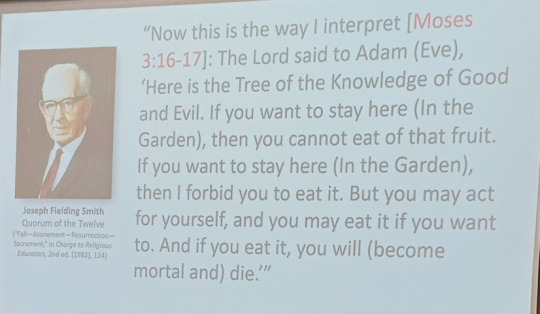
This recontextualizes the whole act. The serpent tempting Eve wasn't just God allowing opposition, it allowed Eve to think on the consequences and benefits of mortality and come to her decision. They were cast out of the Garden not as punishment, but as part of the established terms and conditions of becoming mortal. God did not place them in a catch-22 where the only way to follow one command (i.e. to have children) was to disobey another (not eating the fruit). He gave them two situations, both with consequences, and gave them agency to choose.
Next is the symbolism of the two trees in the Garden, and their role. There is the Tree of the Knowledge of Good and Evil, and the Tree of Life. Eve partook from the former, and a cherubim with a flaming sword came to guard the latter once they had been cast out to ensure they didn't partake and gain immortality in a fallen, mortal state.
(To clarify, they aren't fallen because of a sin, they are fallen because they are mortal, with flaws and the ability to be beset by things that aren't of God. The nature of humanity is not innately wicked, we are all born with the light of Christ, and this is so often disregarded in other branches of Christianity as well as in the Church itself, and I feel it is something that should not be forgotten, but that is a discussion for another time).
Now, considering the two trees, they can represent Adam and Eve, and the roles they had in mortality. The Tree of Knowledge allows for mortality- it is like Eve giving life to all of the world through her choice and giving birth. The Tree of Life allow us to come back to the presence of God and be born again- like the ordinances of the Priesthood that Adam would give to his children. Women give us the first birth through the power of the priesthood (because the ability to literally part the veil and bring a child into the world is absolutely a priesthood power [also, the ability of women to use their priesthood keys that are given to them over their stewardship is yet another separate discussion I won't be getting into now for the sake of brevity]) and men give us our second birth through the priesthood ordinances God has entrusted them with. In this, men and women are both equal parts of Salvation.
The cherubim and the flaming sword can be seen as leaders such as bishops and stake presidents that make sure the people don't participate in ordinances unworthily or without knowing what they're getting in to. While these leaders may have individual flaws, (again, we're all mortal and can choose how much we want to actually listen to God) the idea behind it is protecting those who aren't ready to commit to the covenants or be lifted up to a different state, which is also fascinating food for thought.
Now, my teacher was sure to point out the this is not the sole purpose of men and women, we have lives and roles and desires outside of this, it's just a symbolic way to look at the equal partnership of men and women in the role of salvation, and why both Adam and Eve were vital in the context of mortality and the Fall.
TL;DR, the Fall wasn't a sin but a choice God presented that has been misconstrued, and the two trees in the Garden represent the role of men and women in the birth and rebirth of our spirits during mortality that are both vital and come from the priesthood.
51 notes
·
View notes
Note
Seeing your latest art of the nossies in the group new years picture reminded me of Wolf Mother (and her childe) as characters and now I'm DEEPLY interested in them as people and characters! I love their designs, just how much the curse affected them and am interested in how they fit into the Moonrise Nation story. (not that you have to reveal anything, of course!) Just admiring.
You're too sweet! YOU'RE TOO SWEET 🥺
These two have a lot of lore behind them (which I'm sure folks don't mind) so for the sake of brevity I'll try to keep it simple!
The Kindred population in the pre-colonial states was never that big, and it was kept in check by Kindred themselves - because the more of them that existed, the less food there'd be for the whole. These old laws regarding Kindred creation and conduct state that a Sire is responsible for their Childe for their whole unlife, and forbade any Kindred from having more than one living Childe at a time.
Wolf Mother, original name lost to time, is a seven century old Nosferatu that was Embraced in the St. Lawrence River Valley for the crime of sabotaging the hunting grounds of another tribe in the locality.
Wolf Son, going by the name Jack Skinner modern-day, was Embraced 600 years ago by Wolf Mother for the crime of banditry.
Probably like most Embraces, the relationship between them started out strained and unfriendly. Getting Embraced in the old tribe days was definitely a form of capital punishment and not something anyone really wanted. This of course is doubly true for an Embrace via Nosferatu, and the man that became Wolf Son took a long time to settle into his fate as a hideous living omen.
When he did manage to overcome his grief and horror, he became a proper student to Wolf Mother and served alongside her in the assigned role of the Promiskeepers (The colloquial name for the Nos at the time) - which was to safeguard and dispense knowledge from both Kindred and Kine of generations gone. Things like: what to do when the seasons are uncharacteristically unfavorable, how to respond when a certain disease starts spreading, what to do with land that refuses to yield resources, etc. (Nos like Grandma Oginn also used to provide matchmaking services to her local tribes ;D)
Additionally, in the old Kindred society, the Promisekeepers were tasked with keeping track of debts and contracts made between Kindred. The Nos of pre-colonial North America (at least on the East Coast) were basically your archivists and judges.
As the modern Moonrise Nation is attempting to reclaim some of the old traditions, both for Kindred and their human relations, Nosferatu who come into the faction are expected to take up this mantle of advisors and story keepers, to learn and preserve history, and be there to aid humans and other vamps alike when they're not sure what to do about a problem.
Wolf Mother herself was a bit of an isolated Kindred back in her day, she roamed a huge tract of land and only encountered other undead and humans rarely. Still, she was widely known to be a neutral or friendly presence, and her child inherited the same nomadic lifestyle.
The pair would be separated when the first waves of Sabbat Kindred arrived on the continent on the crossings from Europe. They thought each other dead until very recently.
Wolf Son met with immigrant Camarilla Kindred in the 1700s and would later travel to Europe, where he would be installed as Sheriff over a Midlands Domain for several decades. Modern-day, he has come home to America, and is now serving as an Archon.
Wolf Mother spent most of the last few centuries in torpor near Lake Erie, and in the few years she's been awake again she's been singing into the night in hopes her long-lost Childe might still be around... Poor thing...
You can imagine the eventual reunion between them is gonna be super emotional. Not least of all because the Moonrise Nation is explicitly not joining the Camarilla, and seek to make themselves an independent faction.
I'm sure it's fine 🙃
#vtm#vampire: the masquerade#nosferatu#moonrise nation#I'll cry dont look at me#getting emotional about stuff that only happened because I made it
19 notes
·
View notes
Note
Prithee tell us about your favorite visits to museums, firefly. It’s a long and silent January night and your stories will keep madness from us. (To be read in the voice of a Dickensian child of 6 years old, sitting before the hearth.) ☕️
hey hey!! :) my favorite seafaring vessel, a joy as always to meet u here. fret not, i will not let madness consume you! <3
(the context for the voice definitely helped, i most certainly did read it in the voice of a dickensian child. i can hear the crackle of the hearth as i pen these words!)
oh where to start! this is a bit of a brain dump, but is semi-chronological and images included in the order of discussion
first, summer of 2016, going to the hermitage and making puns about all of the art! they were not good puns. i believe my brother called the statue below a "boar"ing statue. it was quite hot since we went in summer and we were very surprised that the musuem had no ac since there is generally some to protect the art from the elements. so twas a very sticky and humor filled walk thru some art that has seen quite a lot (pic 1)
fall of 2018, went to the met's heavenly body's fashion exhibit with 2 friends from high school. i love & still go to musuem's w one of them, she's v sweet. the exhibit took place in the part of the museum that is older and looks like a church, so it was v prescient!! (pics 2-4, the leather jacket was so cool)
spring 2019, went to the met again (can u tell i went to college in nyc) and to the frick for my art history class to do a scavenger hunt for the class. quite honestly the most fun assignment ever. it was going through the museums and finding the art and writing about it. there were 50 or so things to find out. we went 3 times total for 3 sessions of the hunt. went w my dad for one, he has said he wants to do more even now
fall of 2019 i went to the met's instruments of rock n roll and saw instruments from a lot of famous musicians! i have a bunch of pics of them, but was v fun i went w my dad and got a bunch of music taste from him so that was cool. i was v amused by this many headed guitar hahaha (pic 5)
winter 2020 i went to a black tie gala in an art musuem so that was v fun & festive!!!
ok covid took a hit to this list so fall 2021! natural history musuem in london! went w my brother bc he was doing his masters same time as i was studying abroad there. i mean it's gorgeous. my brother is v interested in rocks so spent a while in the geology section! lots of cool rocks.
feb 2022, went to the met around my bday! my bf flew to visit me. saw very cool swords. pictured below!
summer 2022, went to the Louvre and the musee d'Orsay! saw the painting of dante and virgil in hell which was v cool, i have always loved that one.
for the sake of brevity, lets go to feb 2023, went to the whitney to see my fav artist edward hopper and an exhibit on him! went w the same friend as i went to the met in 2018 w. went w my brother too. fav exhibit ever probably, just bc i love hopper and i have included my fav painting by him, new york movie! my mom had a book on hopper growing up on our coffee table so always read it
oh my this is not brief. the fire is dwindling! ill stoke it.
this summer! the prado in madrid! i love goya so seeing his work was just so cool. they v sadly didnt allow photography in the museum but saw his black paintings the ones w saturn eating his children.
i hope my little tales help stave off the madness <33
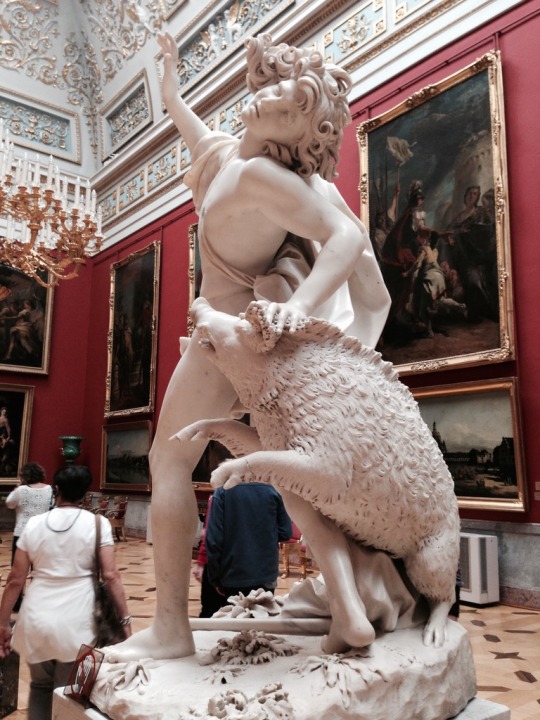


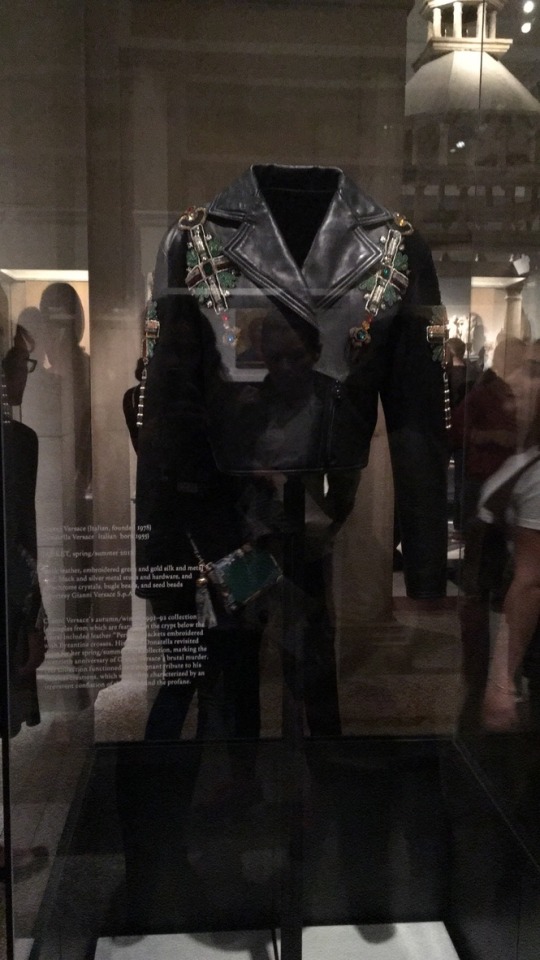
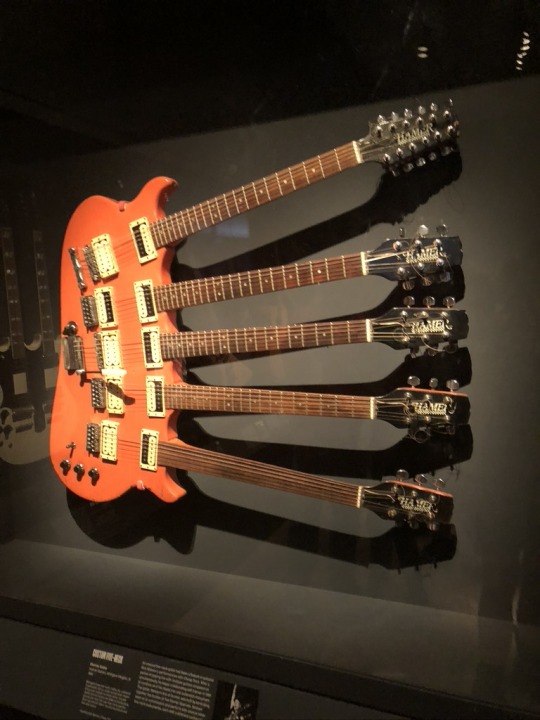

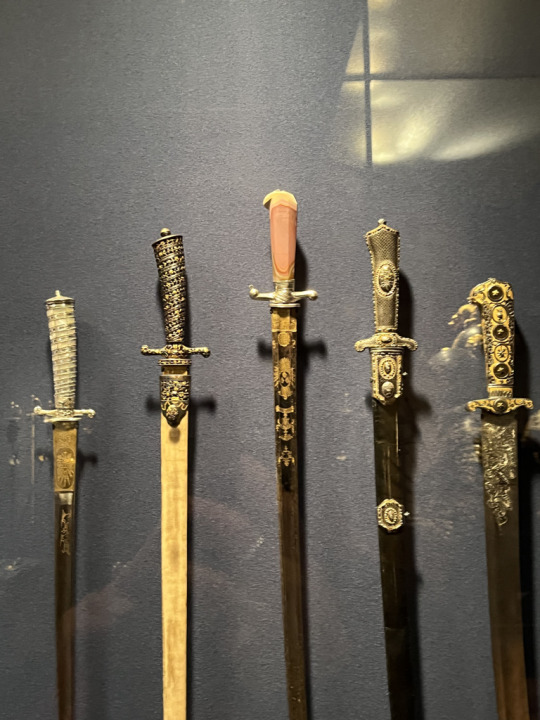
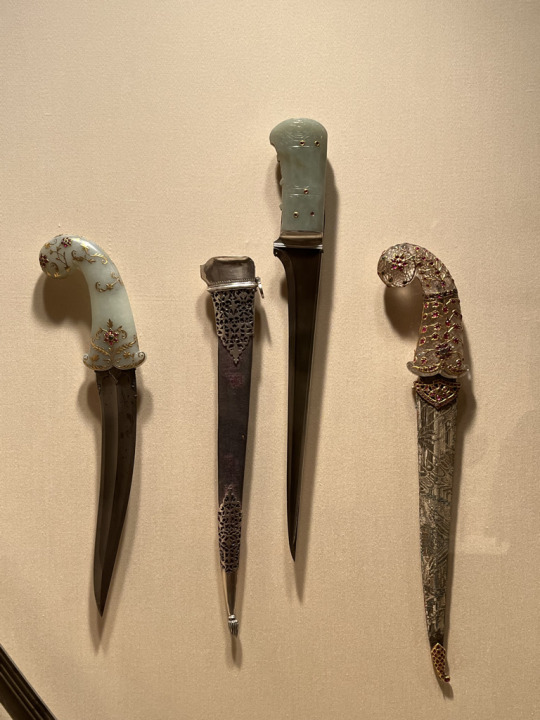

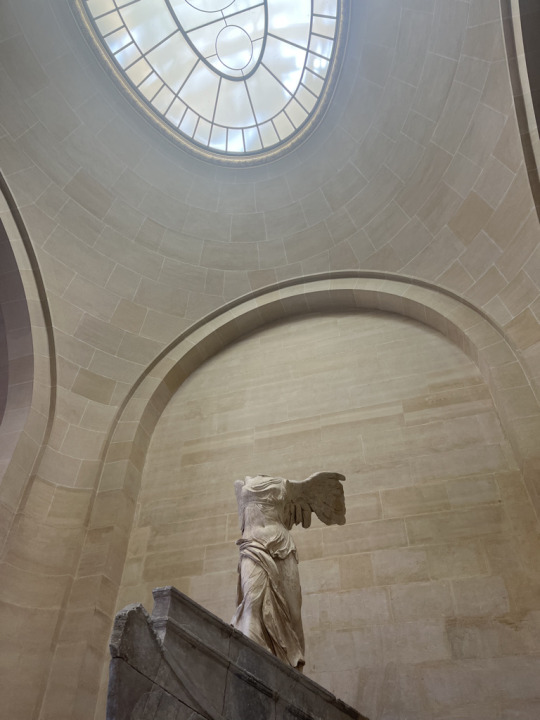


#i just finished work & saw this & want u to kno i smiled#this took me so very long to write hahaha sorry i hope youre still awake#twas so fun!!#there r so many more museums too!!#i also wrote this to the country playlist u made me ty :')#ships tag
6 notes
·
View notes
Text
I’m gonna stop posting about this movie someday, but . . . today is not that day!
The filmmakers lazily dismiss the idea of racism in the movie by making its hero, a South Carolina farmer with enough social standing to be invited to a Charlestown assembly, not an enslaver, but the problems persist. It’s not enough that Benjamin Martin is not explicitly racist himself when no Black person in the movie has any priority or purpose other than protecting White people.
*For the purposes of this meta, I’ve chosen to focus on Black characters tasked with protecting Martin’s children for the sake of (ha!) brevity. Occam and his fellow militiamen’s response to him is a whole other clown show that deserves its own meta.
If we look behind Martin when he rushes to get between Colonel Tavington’s gun and his children, we see that his Black housekeeper, Abigale, is also pulling the children behind her, using her own body as a shield in case the ball misses their father. When Abigale is taken into British custody along with the rest of Martin’s employees, all her protestations focus on the children is she is being take from. When she, for reasons never made clear, appears in the sea island community of free Black people, her sole line is “why it’s the children!” when Martin’s brood arrives to, again, be placed under Black protection.
The people the children’s aunt enslaves are not so lucky. When Tavington arrives seeking Martin’s children, the only people he finds are enslaved men who come out of their quarters to see what all the ruckus is. He asks them where Martin’s children are and shoots them when they fail to answer. This violence appears to exist in the narrative for shock value . . . except it’s not that shocking. When Tavington first appears in the story, before he shoots one of Martin’s children, one of the Black men he kidnaps points out that they “work this land as free men.” At the moment, though, they are acting as orderlies in the field hospital Martin has set up for Continental and British wounded, a task that is well outside their job description if they are indeed freemen.
Martin involves his Black employees in his rash decisions, and they are forced to share in the consequences. While the ones who work for Martin loose whatever measure of freedom they had, those on Charlotte’s plantation suffer a more permanent loss. Martin has left his children, who have already been targeted by the British once, in the care not only of their aunt but the enslaved people who live with her in the expectation that she and they will die to protect them if need be. The plantation also turns out to be a location so obvious that Tavington learns the children are there by asking a Loyalist in his own regiment. Again, Martin’s thoughtlessness not only endangers his children but visits consequences on Black people who, in this case, definitely had no choice in the matter.
Ultimately, Martin not being an enslaver is a technicality. Connection with him and his family brings nothing but peril to Black people, peril that goes largely unnoticed by Martin, his family, and the narrative generally. And yet all the Black people in the movie seem delighted to serve him. It’s Gone with the Wind with more realistic war violence.
5 notes
·
View notes
Text
Art from 2014

i played assassin's creed: black flag on release, and apparently had a pirate phases for a while that i forgot about?
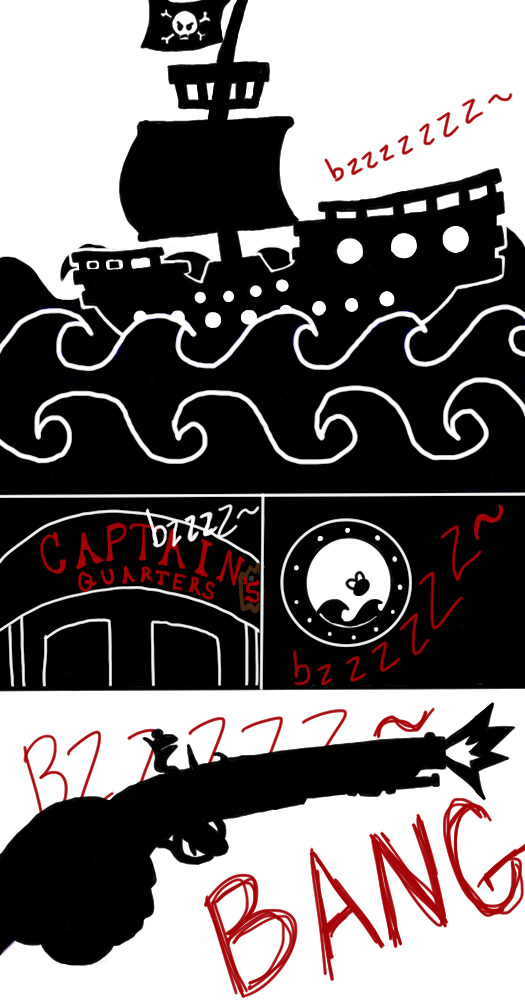
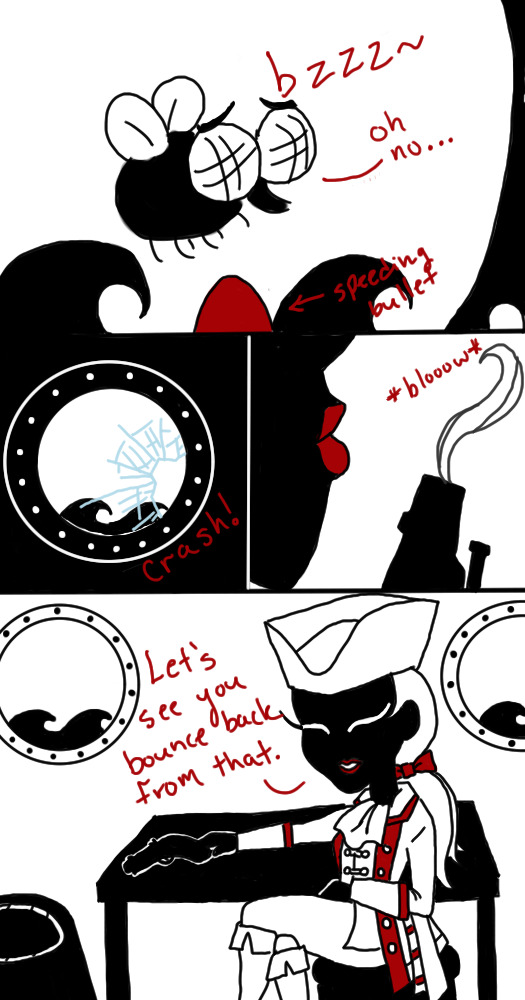
i wanted to write a comic, so i kind of started trying to figure out how to make one, and only got two pages in to my first try.


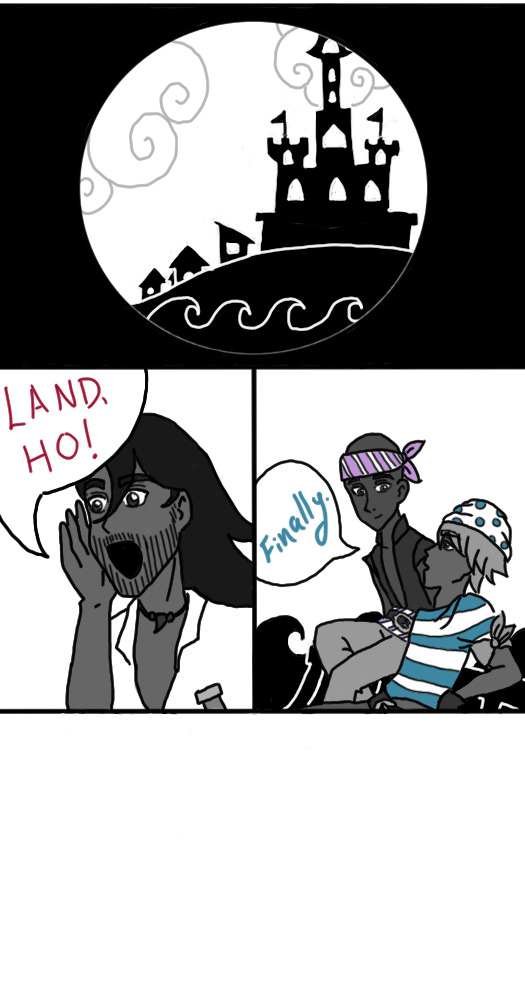
and then only got 1 1/2 pages into a second try lol
i tried a different comic too, focusing on a set of four siblings that i would end up holding onto for other ideas later on - but they started here:
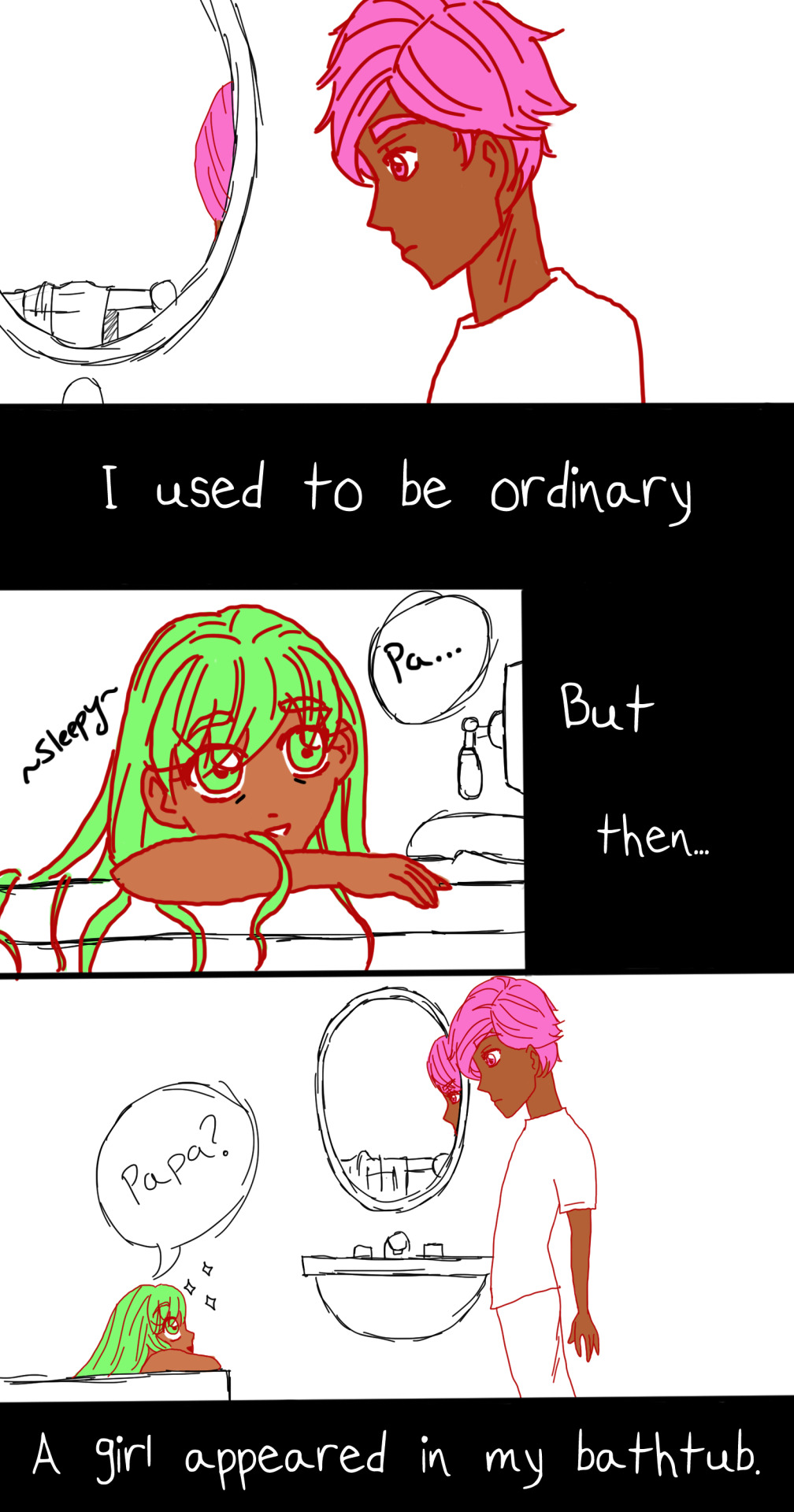
(^ idea 1)
(v idea 2 - i'm pretty sure the house in the second page was traced from a photo i took)




(v idea 3 - i'm missing some pages from this one)

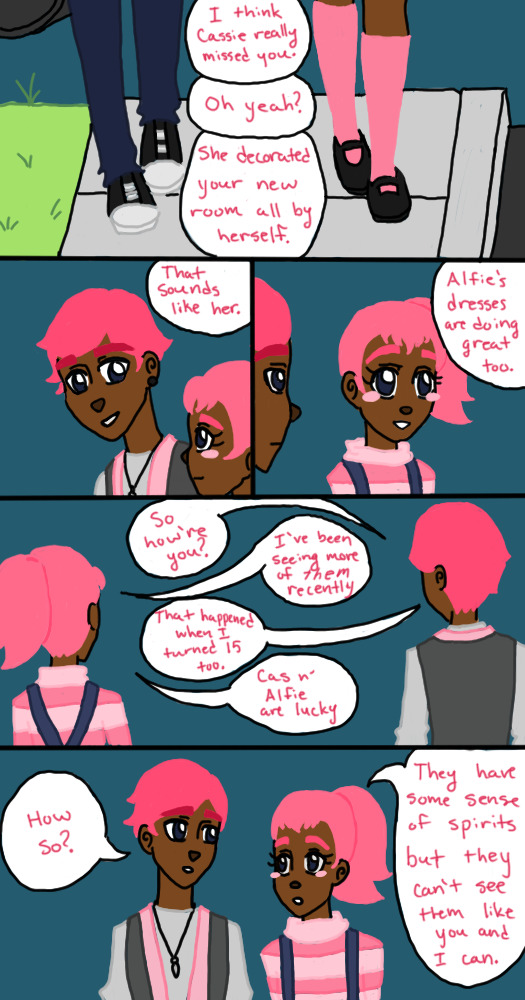
(v idea 4 - actually, now that I'm lining these comics all up, I have no idea what order i made them in, but I'm almost certain this one was last)
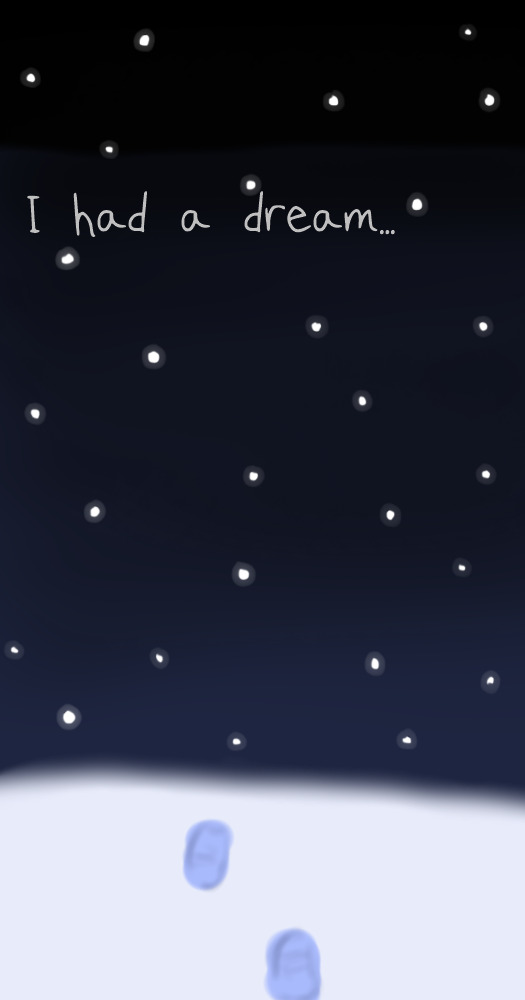
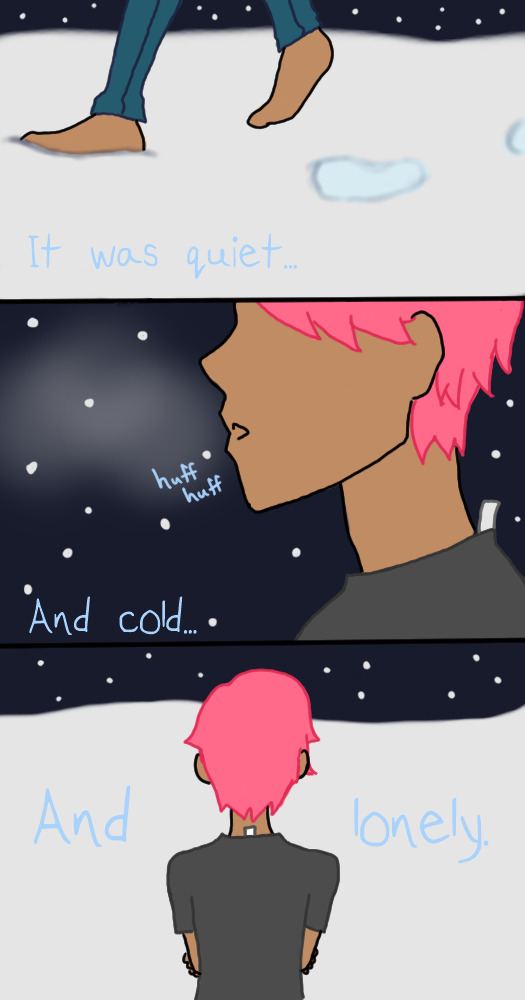

definitely after all those, though, i took the older sister for some kind of magical girl thing??

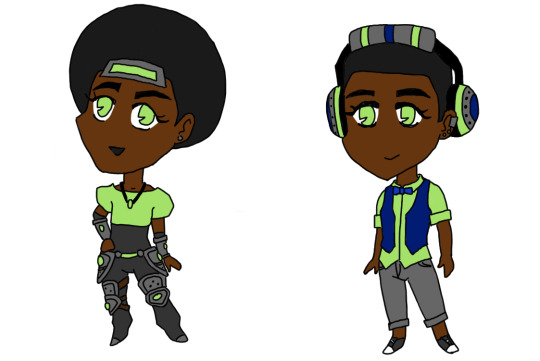

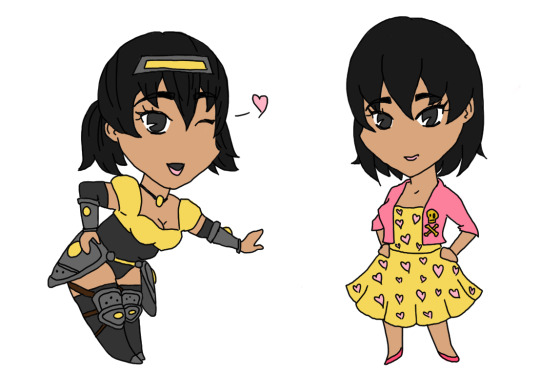


i actually really, really want to redraw these, because i think their outfits are really cute. looking at these i kind of thought they might have been inspired by she-ra, but then i realized it didn't come out for 4 more years, so i can't remember where my inspiration for these came from. also, the blond boy in the blue was also up among the pirate characters.

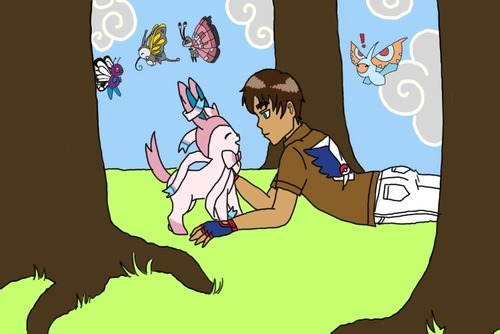
i guess this is where i talk about my ereri phase, huh? i abandoned it a couple of years ago (?) because I felt weird still occasionally getting emails about getting Kudos for it, but I spent nearly all of 2014 writing pieces of a fanfic every day for 365 days. It was called Ereri 365 Project, and it's here on Ao3 if you're curious. i go back and forth on whether or not abandoning it was a good idea, because i considered deleting it altogether, but at this exactly moment, I'm happier knowing it's there rather than not. i don't stand by all of the decisions i made in it now and i kinda cringe thinking about having to face how immature my writing was but… y’know, if, for whatever reason, you’re curious about it, skip chapters 348 to 352.
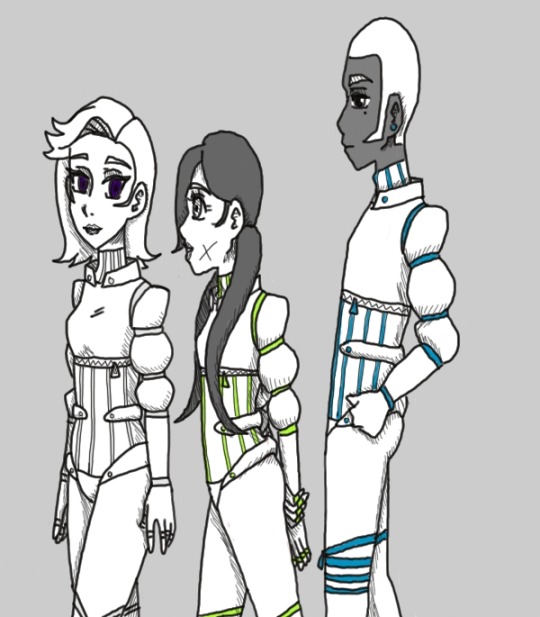
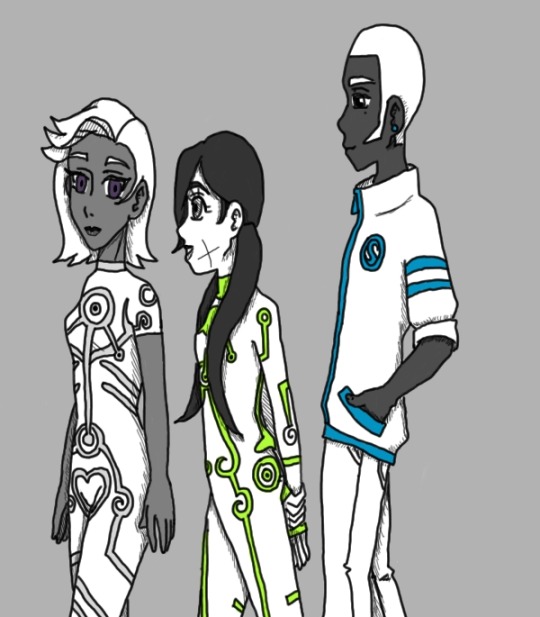

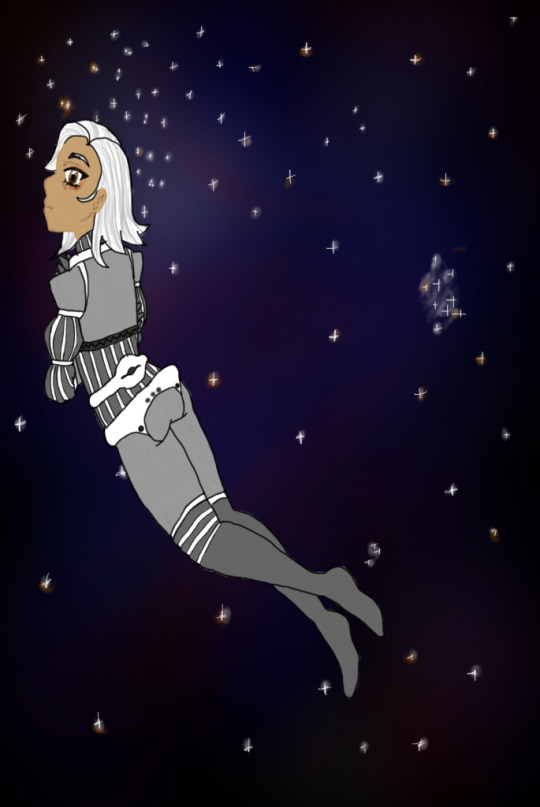
i know for sure that these characters are all over at least one of my sketchbooks and i kinda wish i had a setup so i could scan them in because i was so in on writing a story for these characters after i designed them. i still want to write a story for them. i might, at some point - maybe, like, a series of as a series of vignettes or something rather than a full straightforward story? i would feel bad leaving any of these characters behind, and for the sake of brevity, i think I would have to. anyway - these characters probably come up again in a different year i think.
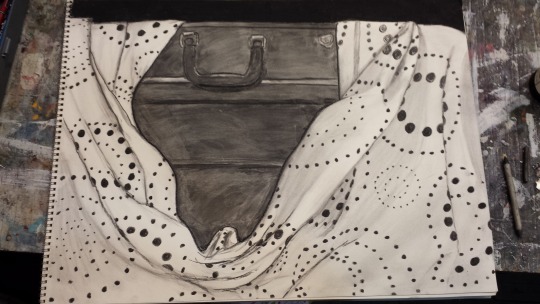
this last drawing was from an art class this year. it ended up winning best drawing at my school's art show that year. I think it's the most proud I am of any art I did when I was in school, actually. it was done in charcoal,.
0 notes
Text
I’m probably going to be restarting therapy in August (assuming everything goes well I haven’t heard back from the therapist since we had our little test call) but until then I’m trying my best to just kind of get my shit together otherwise to keep from having panic attacks over stupid shit. I feel like I should also try to document my thoughts/where I am for when I do actually start therapy and this is probably the best way to do it (feel free to read this if you really want to lol, I wouldn’t recommend it). This is basically just going to be a long stream of consciousness documentation of my history with relationships (though I’ll avoid the nitty gritty for brevity’s sake (lol)) and how I’m feeling about them at this moment.
I’ve never had great luck with relationships and it’s always been a point of stress in my life. I was already sort of predisposed by being a closeted gay kid to some dysfunction with relationships and have had a string of bad encounters and non-starters (with a two year gap of misery from a job that sucked up all my time and energy). A lot of the stress I’ve experienced has been in some ways self-imposed, being worried about timeframes and milestones, though in retrospect some of that was also motivated by the fact that being queer also robbed me of a lot of the opportunities I had otherwise. My pickiness with people compounded the issue.
So now, over ten years after my first attempts at relationships, I’ve yet to have anything stick for more than a couple weeks. I’ve lived in two different countries, two different states and four cities between them, and despite trying different things and changing tactics more than once, it’s never really made anything happen. I’ve tried going on dates with people I’d not normally consider, only to be disappointed or had my pickiness reinforced. I’ve tried casual sex, only to find that I’ve never really been fulfilled by it and that my libido doesn’t really drive me to do much. I’ve tried to find activities and groups to make friends, only to find I’m kind of repulsed by the idea of group activities.
So here I am, about a month and a half a go. I meet a guy, he asks me out, we hit it off, like really hit it off. I don’t think I’ve quite clicked with someone like I have with him. I ask him about his relationships and he falls asleep before answering (possibly to dodge still not sure lol). He’s living in Tokyo, a few hours away, and he’s only in town for a few more days before he goes off on a European tour. I’m like “ok, see you when I get back”. I follow him on Insta to keep up with his trip and to talk to him. He goes off to Europe and I notice his stories - which all include a guy that definitely looks like his boyfriend.
This digs up all sorts of insecurities - I already spent three years chasing a guy who never got over his ex, and I have had so many cases where I chase after a guy who seems pretty disinterested in me. Suddenly, I’m basically overcome with anxiety and what I can only describe as grief. I try to rationalize it, try to tell myself there’s something that can work from this, I can’t let myself get in the way of my happiness, but all this thinking just digs the pit deeper. I start to have anxiety attacks, not over this relationship necessarily, but how I’m reacting to it and my circumstances in general. This one interaction that was good, great even, didn’t work out the way I wanted to and now I’m spiraling.
I’ve managed to stabilize about it somewhat, tear myself away from my looking at his Insta stories obsessively and going through the whole cycle again to the point where I can just kind of look at it casually and not get too upset. But this whole thing has made me realize that there’s a lot of baggage here I need to handle.
I’m a pretty independent person, to a fault. I live in a foreign country with basically no one to help me manage and I’m doing well in spite of that. But it also makes it really hard to make friends or connect with people, so on the rare occasions that I do, I cling to that. But this is a huge issue in Japan for me, especially with gay men. There’s a tendency, likely related to how Japanese society is structured, for gay men here to cluster into tight knit groups that tend to be made up of 10-20 guys. It’s very social, very integrated, and it’s tough where I’m living both to break in as a foreigner and just living in a relatively conservative area where there’s not a lot of gay life in general. When I try, I find it difficult to fit in and I just kind of feel like a total outsider in a place that is otherwise at least tolerant of me (I mean I’m a gaijin I’ll never totally fit in, but I don’t feel unwelcome at least).
This new guy felt like an in, like someone who could push me into a group where I could meet people. But the more I think about it the more I realize that I’m not sure that’s what I want. I don’t really want an in, I don’t really want to be part of these groups. I don’t have the social energy to keep up with ten people, to go to these big parties, to be part of a harem. It makes me feel awkward and out of place on a good day and trying to restructure my life around this feels like a huge gamble. What I really want is to just be a part of someone’s life. I want to share that with them and be seen for it.
The other day I saw him post on his Insta that he bought the comics of Heartstopper, which is something I recommended to him. He hadn’t said anything to me about it or that he was buying them, I just saw it like anyone else who follows him did. And like, on one hand, I don’t really expect him to? But it still kinda hurt. I felt invisible and forgotten. And it made me realize that that’s the thing I hate the most - feeling like I’m second or a side piece or just there when it’s convenient. I spent so much time in college being that and it hurt and still does today, and I’ve had it happen again. But then I feel crazy for saying this - this is a guy I’ve literally only ever spent time with once, why should I care?
And this is where I end up - feeling hurt and ignored but in a position where I don’t feel comfortable articulating this, because I’m being hurt and ignored by someone who doesn’t even realize it or have any reason to. It feels like this happens over and over and I don’t know how to break from it. Maybe I shouldn’t get so invested in people I barely know? Probably, but like, can you blame me? I’ve gone for so long with seemingly no one to pay me any attention. And every time I attempt to go out and find that, find someone who will give me the time and love I’m seeking, I just find myself in situations that make me feel uncomfortable, awkward or miserable.
I ask for advice about it and all I get is “try harder” or “do it again” or “do something else” or “that’s just how it is”. So I just to and try harder or do it again or do something else and every time it feels so unnatural and like I’m fighting my desire to do what I actually want in service of an abstract goal of meeting someone. And if it does work, if I do put myself out there, I’m so exhausted by all the effort of it and so desperate to not have to go back, I put a bunch of pressure on whatever this is and freak out. Then I throw it away because the thought of it gives me anxiety and I can’t handle it anymore and I’m back at square one.
All I want is a quiet space to meet people one on one, get to know one person without all the fanfare and social effort of a group or the expectation of sharing myself with a million people and hoping to get lucky. I am unable to run that marathon and I don’t want to fake it anymore only to collapse on mile 4 and give up. I’m done with forcing myself into the socially acceptable box that gay men have constructed for themselves to find each other in. I really don’t know what any of this is or how I can find it, but I do know that I’m not going to just do what I’m told anymore and hope it works out. Whatever that is it doesn’t work for me. I could be wrong but I don’t think I am.
I’m going to meet a guy tomorrow to play video games with him and I hope it goes well. I’m going to try my best not to put too much pressure on it, and who knows what will come of it, but I really hope at the very least it’s the start of something new and meaningful.
#yeah#this is very long feel free to skip#please don't reblog but comments are welcome#I'm mostly just putting this here so I can look back at it later#also maybe read it to my therapist or something
0 notes
Note
Hi, love your admiral headcanons so I will ask for one, where they are a parent to a rather energetic, young child. One that loves to play and lives super into it / at sport gives 110% / story time must be given in the pillowfort and pleads for a horror story. Overall they just want to spend as much time with the admirals as possible. Thank you ^^
ty anon! this is a cute prompt, hope I did it justice lol. I decided to refer to the child as C/N (child's name) for brevity's sake btw. also, for Aokiji I wrote this assuming it was pre-timeskip.
Having a young, energetic child: Sakazuki, Kuzan, & Borsalino
cw: parenting/fatherhood
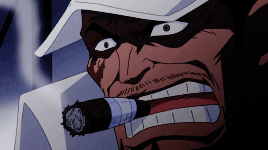
Sakazuki (Akainu)
↳ At the same that time he finds his child incredibly endearing, this man is TIRED. He's hard and soft at the same time. It's a weird duality but it makes so much sense for him. His tender moments are few and far between, so if he has a partner or co-parent, they would hopefully be more present (emotionally and physically) than him so they can offer some extra reassurance and comfort in his place.
↳ Needless to say, Sakazuki is a pretty strict parent. There's a certain point where he deems his child's energy inappropriate or over-the-top, especially in a public setting, and he's quick to lower the hammer. He feels like his child represents him, in a way, and he doesn't want to lose face by letting people think he's not raising up his kids well. I actually don't think he's the type to spank his kids or anything like that, but he has very clearly defined rules and punishments in place. No exceptions. He doesn't give in to puppy eyes or anything like that either.
↳ He doesn't want to completely drown out C/N's personality or energy, because he does think it's a good thing– he just wants them to understand that there is a time and place for frivolities. Work before play, and a standard for behavior throughout. I could also see Sakazuki wanting them to channel their energy into things that he finds acceptable and productive. Sports and martial arts training certainly fall into those categories, so a lot of the time they do spend together is probably related to that. Again, if he has a partner/co-parent, it would be great if they helped monitor this to make sure that Sakazuki doesn't become too overbearing in these areas, because he's the type would could easily slip into that territory.
↳ Beyond that, Sakazuki isn't the type to put his personal life over his work. Still, his heart goes incredibly soft whenever C/N makes it clear how much they love him. I don't think he has many people in his life who are that open with affection towards him, and he wouldn't take his child's love for granted. And he really does like that his child puts their full effort into everything they choose to do. (In that sense, Sakazuki definitely sees himself in C/N, even if they're more gung-ho than him about things that he would normally deem unnecessary.)
↳ So when he is able to spare time for it, he'll comply with whatever whimsical activities they want to try out with him, as long as it isn't anything too ridiculous. But he gets more invested than he ever really expects or wants to admit. Sakazuki doesn't half-ass things. If they're gonna do it, then they better do it properly. Their living room's pillow fort is the strongest fortress built since Marineford itself
↳ He's pretty awful at making stories up ("The pirate captain was so evil that the marines sunk his ship and everyone on it died. Justice is served, the end, now go to sleep.") So he probably acquires an abundance of children's books for before-bedtime. He doesn't do any funny voices when he reads them, but I mean... he does in fact read them out loud, so at least there's that lol. But when it's a horror story, Sakazuki kills it on the delivery. Comes totally natural to him
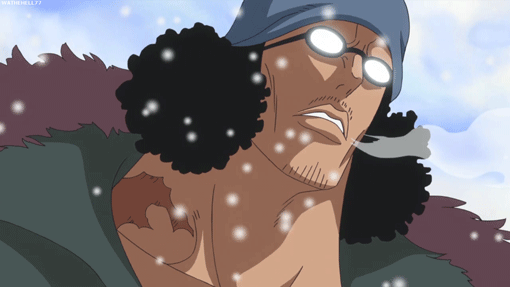
Kuzan (Aokiji)
↳ He's such a laid-back father tbh. Kuzan wouldn't smother his child, but he’s always keeping an eye out for them. He's very aloof with many people in his life, but with C/N there's a warmth and a tenderness to him, and he's so open with it at all times. It's wholesome. Sometimes he feels a little bit at a loss with how energetic they are, lmao. It's just because it's so different from how he goes through his day-to-day, as a self-proclaimed lazy man. He's more of the selective type when it comes to spending energy, so sometimes he looks at his kid and he's like... how??
↳ He isn't judgemental about it though, and never lets C/N feel bad about their personality or energy levels. He's more just silently in wonder about it. He's kind of eccentric himself so who is he to judge lol
↳ Unlike Sakazuki, Kuzan isn’t really picky about how C/N lets out their energy. Honestly as long as they aren’t wreaking havoc upon the city, he’s fine with it. He feels like children should get to be carefree and goofy; he knows that not everyone gets the privilege of a peaceful childhood, and he wants C/N to enjoy that innocence for as long as they can.
↳ Also... Unlike Sakazuki, Kuzan isn't overly concerned about whether C/N wants to become a marine when they're older. He's far more concerned that they'll idolize the marines because of his allegiance & high position in it, and then be let down when that illusion inevitably shatters later down the line. So Kuzan wants C/N to explore many interests, though he wouldn't push any in particular onto them. If they want to devote their energy toward it one day, then sure, but he'd still emphasize the importance of determining a code of ethics for themselves instead of blindly following orders.
↳ On a lighter note... he doesn't mind playing with them at all, he really enjoys it. He'll often go out of his way to make time for it, because he feels really bad about how busy he is as a marine. The last thing Kuzan wants is for his child to think he doesn't like spending time with them. So when he's able to be with them, he fully commits to any games, play-pretend, or shenanigans (within reason) that C/N wants to get up to. He'd gladly play pirates and marines, set up a tea party, play sports with them for hours at a time, upend a mattress and emptying the linen closets to build a pillow fort. He's all for it
↳ I feel like Kuzan would be especially into the pillow forts though tbh. He'd probably buy more pillows and blankets just so they could have more to build with. He doesn't know what it is exactly, but they're just so cozy. And they make C/N so happy. And they're perfect for shadow puppets & cuddling C/N after he accidentally scares them with a too-scary horror story. He likes pillow forts a lot ok
↳ One last thing... Idk why I can't get this idea out of my head, but I feel like Kuzan would like to help C/N raise a pet once they're old enough. It just feels so right for them... It'd probably end up being a stray of some sort that he takes in. He loves them both dearly. His heart gets all mushy when he thinks too much about it– like he's literally watching his child learn and practice compassion & it just makes him feel very tender inside :')
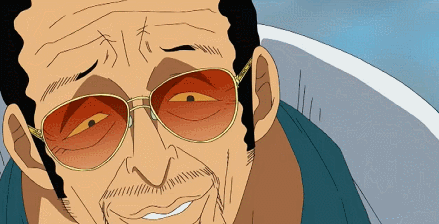
Borsalino (Kizaru)
↳ Borsalino thinks it's kind of funny how opposite he and C/N are in terms of their energy levels. In this case, his parenting style is probably a little hands-off? Not like he's never around, but he doesn't want to hold them back from doing the things the want to do, with whatever high-level intensity they want to do them. But he honestly doesn't have the emotional stamina to match his kid's energy all the time lol. Oftentimes he'll be a half-committed participant or just a spectator to the activities.
↳ He'll bring C/N with him to work at HQ on days that he expects things to be boring, but then he'd use C/N as an excuse to slack off. Like "Oh man :/ My kid's having a tummy ache, sorry I don't think I can make this next meeting... How unfortunate..." Then the next time someone goes to check on them, C/N is running laps around his office and Borsalino's sitting with his legs propped up on his desk. Just eating a slice of tiramisu or something. He's so out of line
↳ I could also see him asking some foot soldiers play sports with his kid at some point, because he's too lazy to play himself lmao. C/N just gets so into it & that's really not his speed. He's always jokingly telling them that an old man like him just can't keep up with a star athlete like C/N :( poor him...
↳ C/N's probably always like dad you're literally a marine admiral but ok :l
↳ But yeah, playing sports with an admiral's kid is so out of the job description, so that's kinda cruel of him. But then again for the right person, it's a lot more fun losing a game of soccer to an overly-competitive kid than filing paperwork for hours. And it's cute because Borsalino is the antithesis of those dads who are way too pushy about their kids playing sports.
↳ Like, the most C/N will get out of him during a soccer game is like a few half-hearted kicks, but as a spectator?? Borsalino is so supportive. He barely follows what's going on but he's clapping for his kid at all the right times. It'd be funny if he told his subordinates to go easy on C/N, but then still talk smack when they get their asses handed to them. Like, wow C/N, amazing! :D So embarrassing for you though Cody, maybe next time :)
↳ Yes he almost continuously gets Coby's name wrong
↳ He makes up the silliest horror stories for them, it's so wholesome. He pretends they're 100% real too, as if they're stories that he's heard from his fellow marines or even seen himself "firsthand" while he was out on the sea. And considering what the OP universe is like, whatever Borsalino comes up with probably isn't all that far-fetched? He tries to keep things light-hearted enough that C/N will still be able to fall asleep by the end of it though. He definitely wants it to be the kind of cartoonish horror story that would just give C/N a nice few laughs before bed, nothing too nitty gritty.
#borsalino#kizaru#akainu#sakazuki#kuzan#aokiji#one piece#one piece imagines#cw: parenting#cw: children#kizaru x reader#akainu x reader#kuzan x reader
288 notes
·
View notes
Text
So out of nowhere I was tagged and quoted by a SR shipper for a blog of mine posted in August of last year. Talk about throwback but, hey, gotta appreciate that level of snooping. 😉
Back in the day I actually used to encourage discourse amongst Inuyasha fans- both shippers and antis alike- but I've since realized that it's a lost cause. But for you, @feministmetalgreymon , I'll grant this exception. Just 'cause it's been a while so why the hell not. haha
I want to assure you, however, that nothing you say will ever convince me that Sesshomaru and Rin are meant to be together romantically or that the story intended it so. Nor will you find any validation here. You can ship them for all I care, but please for all that is good and holy while I have your attention try- I mean really try- to understand why it is so many of us Inuyasha fans are so against this pairing in the first place (newsflash: it's not about ship wars), and why we believe a romance between the two of them is completely and utterly out of character.
For those of you interested in reading this, the blog of mine in question that the above shipper mentions in their counter-argument is here for reference. It's titled "Jaken = Rin's Dad?" I'm going to try and keep this short, but I'm also making no such promises. After all, I'm not exactly known for my brevity. haha Now let's get crackin'!
Like you, feministmetalgreymon, did for your recent blog here where you took screenshots of mine to address certain parts, I will be doing the same and dissecting yours accordingly.
[Snippet 1]

I worked with kids for many years as a teacher, and many people in my family have too or still do. Two of them happen to be just over 5 feet which is quite short for the average adult woman living here. I've also worked alongside many a women of short stature, and never did I hear any of them complaining of issues with their students having difficulty differentiating them from their own peers just because they were short as well. I'm sorry but that's just ridiculous. Kids are quite smart and pick up on a lot more than you seem to give them credit for. Height is not the only characteristic they look at to determine who's an adult and who's not, and it's foolish to suggest otherwise. So unless you're a babysitter who's still in their teens and/or who has very childlike features or behavior then I'm afraid what you're getting at is total hogwash. This is just another example of how you shippers offer nothing of real substance to your reasoning, it's only ever cherry-picking or strawmanning from you guys. Stop deflecting from the real issues please, because this certainly isn't one and only winds up being a complete waste of time for all parties involved.
[Snippet 2]
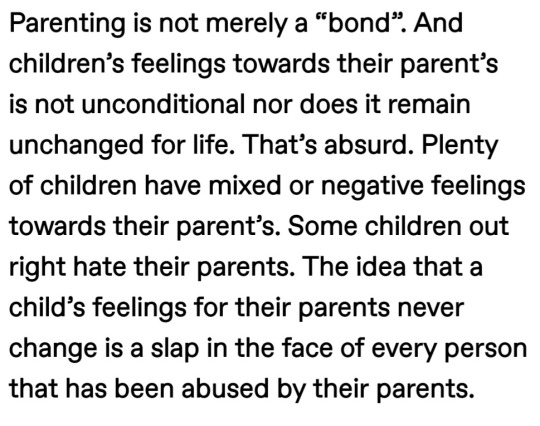
Okay, calm down now. I wasn't insinuating that relationships between parents and children can't change over time in terms of how they get along. Of course that's possible, as all families experience their fair share of estrangement and abuse. What I was speaking about was in reference to the overall dynamic between the two. Because a bad mother or father can still be viewed as a parental figure to their child even if say they're not in said child's life anymore. Since Sesshomaru and Rin share a healthy bond- and just a friendly reminder that in my blog I even said that he doesn't have to necessarily be labeled her father but that a romantic relationship later would still be inappropriate- I didn't deem it necessary to address what you brought up. Plus, it kinda, umm, misses the point?? Please, let's stay on topic. And it's not captured in the screenshot, but stop acting like there isn't a small part of them that idolizes their parents at some point during childhood. Just like you mention later on how it's normal for kids to have innocent crushes on adults that they eventually grow out of? Well, guess what, the same concept applies here. Kids eventually learn that their parents are far from perfect and make mistakes too. Rin is so damn young in the OG series though that we never even get to see her reach that maturity level.
[Snippet 3]
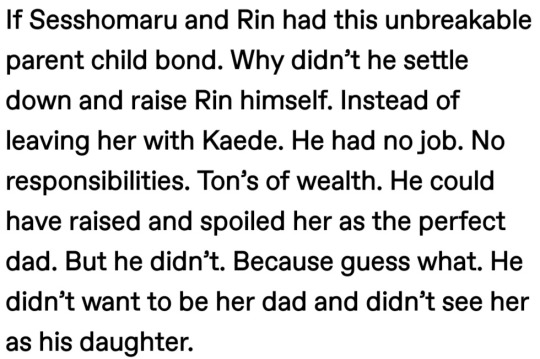
LOL! Alright, okay, so the "unbreakable bond" bit you're mentioning was actually me quoting you sessrinners. Did you not catch that? I literally spelled it out. *sigh* The whole point I was making is that shippers like yourself make hypocritical and contradictory statements all.the.goddamn.time. One moment you guys claim that Sesshomaru and Rin were essentially strangers and meant very little to each other, only to say in the same breath a few seconds later that they were destined to be together and their bond is like no other. I agree, their bond is special, but why must that mean they're going to fall in love?
That is the root of the matter here. Too many animes/mangas have romanticized this older adult man & young girl growing up falling in love trope that it's become way too normalized and widely accepted across the world- and yes, in some cultures more than others. Sadly, you lack the awareness to recognize how this all works. You know how we know that? When we see that you shippers are so desensitized to sexualized images of girls in the media that you share posts like this one below which *subtly* imply a future romance although one half of that pairing is still just a child in the pic and then try and pass it off as cute. That's like super fucking problematic and it scares me that you can't see that (or deny you do). 🤢
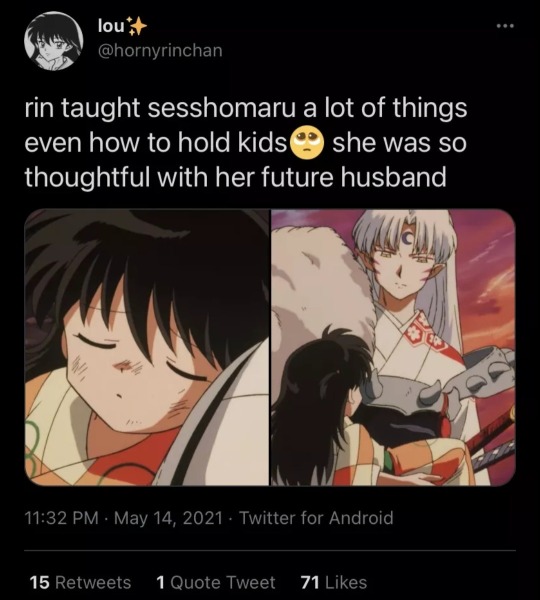
After all that's said and done, Sesshomaru leaving Rin in the village with Kaede is to me the strongest indicator more than pretty much anything else he's done for Rin that proves he is her adoptive father. It's so funny to me how you somehow see the exact opposite though. 🤔 What I think is happening is that you got yourself on some squeaky clean ass shipper goggles fresh out of your little echo chamber. Because I hate to tell you, but what you're fantasizing is what you want to see and not what's actually there on screen or was written into the story. I'm strictly talking about Inuyasha and the manga of course. [For the TL; DR version skip to the last paragraph.]
Parents looking after their kids is what parents are supposed to do. A good parent will do anything to keep their child safe and ensure they are cared for, so what he did for her by leaving her there was in her best interests clearly. Besides, as a babysitter, you more than most people should understand that parents aren't always able to be there for their kids so sometimes others gotta step in to help. Haven't you heard of the saying, "it takes a village to raise a child?" Which in Rin's case is literally true! 😂 Sometimes kids are even sent off to stay with grandparents and that's who raises them instead. Or maybe they have to temporarily live with an aunt or uncle because their single parent's job requires they work out of town 4-5 days of the week so they're hardly home. But that doesn't mean that the parents care or love their kids any less, and it's foolish to assume that Sesshomaru must have thought very little of Rin simply due to the fact that he made the decision to leave her in the village. Come on, y'all are acting like he abandoned her there!!
It's just given the circumstances Sesshomaru finally came to learn that Rin traveling with him was no longer safe. I also like to think it's because he wished for her to live a more normal life and to learn how to fully trust humans again. Plus, continuing to travel with him as young as she was would have proven dangerous and unwise. Now for you to know all this and still manage to turn his past actions towards her while she was just a child into a romantic gesture is what boggles my mind. Regardless of how you look at it, from my perspective or your own, Sesshomaru is in the wrong. Either he's a father figure who impregnates his daughter at the young age of approximately 14. OR he's this man she used to travel with who maybe isn't a father to her but who nonetheless basically rapes her since kids her age can't consent to sex with an adult. Idk about you but it sounds to me like nobody here wins with either scenario we're given. In other words, you should be just as mad as we are. If only one side didn't choose to forsake their morals they know we both have in common for the sake of a ship. Welp. 🤷♀️
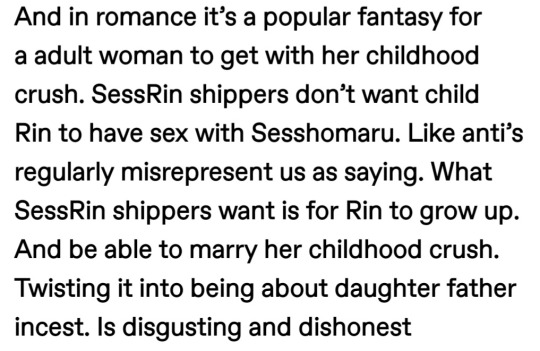
I agree, incest is disgusting but that's not the only problem we have with this pairing. A romantic bond forming between Sesshomaru and Rin would also constitute as grooming.
You realize that over the years he visited her in the village that he brought her gifts too and essentially watched her grow up right before his very eyes, right? I mean, I know you do, but I really shouldn't have to explain further why pursuing a romantic/sexual relationship with each other is plain and simple wrong. And before you say it's not because he didn't have any malintent, please understand that considering their history and power dynamic up to then that yes this is still considered grooming even if Rin supposedly "wanted it" or "made the first move." Whether you consider him her father or not, as the adult who took on a role resembling that of a caretaker in her early life- a critical developmental time for a child- Sesshomaru is obligated to turn down any advances by Rin and most definitely should not initiate any himself. As the first close adult figure she's had in her life since her parents died, it's unfathomable to imagine how Sesshomaru could go through with taking advantage of this young girl who was under his care and supervision since they met. To think he could be capable of betraying that trust sickens me to the core.
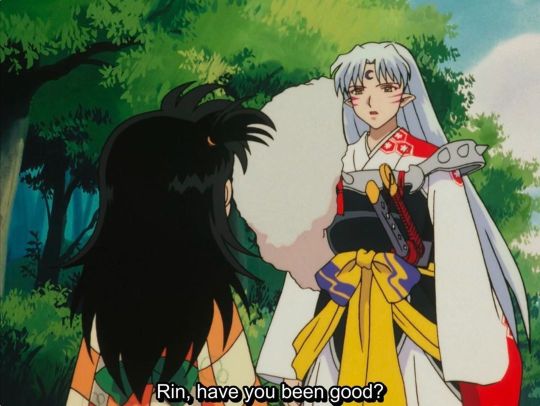
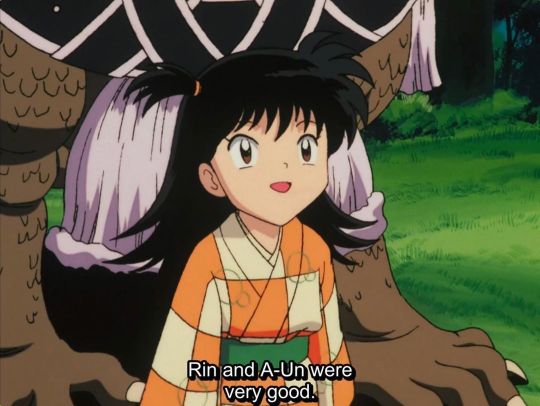
This. Now THIS is how a parent/guardian or a similar adult caretaker (babysitter, teacher, etc.) talks to a child. And, in turn, this is how some young children talk to adults. You'd be insane and delusional to deny it! We see it in our everyday lives, do we not? From where else do you think our stories draw most of their inspiration? Yes, obviously these fictional universes have aspects of fantasy that don't exist in the real world, but so how then do you suppose we're able to relate to them? The reason for that being is because these stories are written by people for people, so naturally there are going to be real life aspects embedded throughout. Sure, a little escapism doesn't hurt as we don't need to take everything so seriously, but ultimately we all need to recognize that the messages in the stories we tell matter. Most stories possess a combination of both light and dark themes, but when it specifically comes to the latter we gotta be careful with how we tackle this in children's media since kids are far more impressionable.
So if at the center of a story we have two of the main protagonists whose mom is basically their same age and to top it off she knew their dad when she was just a girl and who just so happened to help raise her, wouldn't you say that's beyond fucked up or at the very least so fucking weird? Like why would we think it's even remotely okay for our children to watch this garbage?? Really think about it. Try and be objective for once and think about how it would sound explaining this storyline to an outsider who's never watched IY or HNY. Well, antis have tried this before many times and we always get the same reaction: Ewww!
Like I said earlier, if you wanna ship it then fine, but 1) please stop seeking our approval or trying to change our minds - your ship wish came true didn't it, so why do you need us to validate it? 2) even though it's not canon, respect that we don't support this sequel portraying pedophilia in a positive light. It's harmful af to not only allow but glorify the continuation of sexualized images of young girls everywhere. And I shouldn't have to say this, but just because this trope is popular as you say does not make it right. Lolicon themes in the media have been an issue forever and it needs to stop. Yes, even some people in Japan or "the East" would agree. Shocker!
We're pissed off and rightfully so because Yashahime's TV rating is 14, not to mention it airs at the prime time kids in Japan watch TV after getting home from school. That's Towa and Setsuna's age, true, but if Rin being the mom when she's like only a year older than them (please don't argue w/ me about the math- antis have so far been right every time with it) is straight-up disgusting and not something we should be supporting or endorsing. Rin's a whole ass child!! Please don't start with the "but times were different then so her having kids at 15 is acceptable" argument either, because we've already debunked that and every other single excuse you guys throw at us. Besides, how or why would you expect young viewers to know these historical "facts" anyway, especially if as you suggest fiction doesn't affect reality so what does it matter? Yet here we are, arguing over a fictional show in real life almost a year and a half into the "Sesshomaru fucks?" sequel being announced. My ass, your ass, hell all our asses fiction doesn't affect reality!
Look, I do apologize if the tone of this blog came off as snippy or condescending at times. I do not wish you any ill will, it's just I'm not really sure what you expected to get out of all this besides maybe getting on my nerves perhaps. haha A lot of you shippers have been desperately scrambling to interact with us, lurking in our tags, jumping onto our posts screaming canon and getting so defensive even though you sought us out first. We've been sticking to our tags, so how about you stay in your lane too. By the way since we're on the topic, have you seen Twitter or Reddit?! SR shippers there are the actual worst and many Inuyasha fans (not just antis) have complained of not feeling welcomed to engage in fandom spaces anymore. Shippers swarm them and scare them off simply because fans don't like your ship and refuse to accept it. It's pathetic, really. No one should ever be bullied or harassed just because they don't like something you might. We're all fans of Inuyasha, aren't we? So let's act like it. Yashahime on the other hand, you guys are welcome to that pungent heap of trash. Fans have a right to criticize it too, but if you like it then good for you, so keep on liking it and don't mind us.
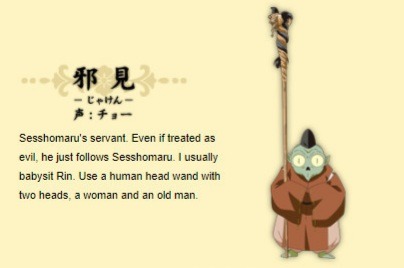
I'm almost done, but real quick back to Jaken! Let's not forget about how the official Yashahime website- which came out after my blog, mind you- described Jaken. This translation isn't the best one available but it's the only version a fellow anti friend could track down. They do recall a better one done by a native Japanese speaker who was also an anti, and that member confirmed that Jaken is indeed called Rin's babysitter. So you see, I was right in my interpretation. In the original post I did compare Jaken to a brother, but after talking to others (some comments can be found under said post) I did acknowledge that he's more of a reluctant babysitter who's not related. And if he's not at least a brother to Rin, then he's definitely not her father.
At the end of the day, the creator Rumiko Takahashi has the final word. Which is guess what? Hogosha. 💖 Probably should've just started out with that and saved us all the trouble, huh? Good day/night to you.
Papamaru bids you adieu now. 🤞
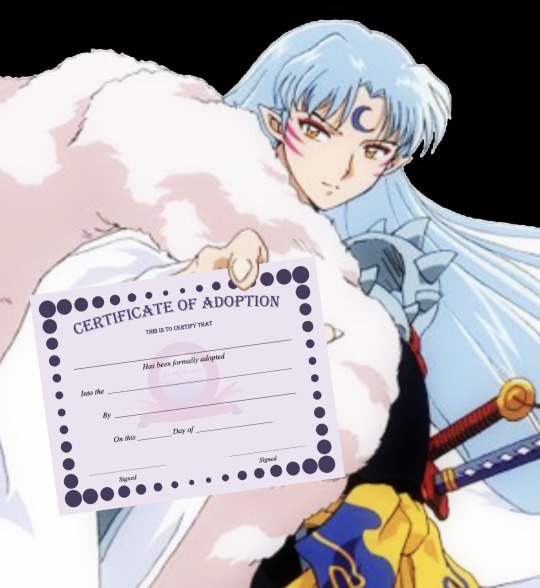
#anti yashahime#anti sessrin#sesshomaru is rin's dad#papamaru#hogosha 💖#the sequel may not be canon but sunrise can still burn in hell
124 notes
·
View notes
Note
Does Ronan realize he’s turned into Kavinsky? Or better question, do you think the parallels to Kavinsky in MI were intentional on Maggie’s part? Because unless you’ve read every book since TRC, she makes no reference or gives no context to Kavinksy. Or could this be Maggie’s way of writing more of a Kavinsky like character after she swore she wouldn’t write any more of his character? I think MI Ronan is who he would have maybe turned into faster if he’d chosen Kavinsky in TRB. Maybe, MI Ronan wishes he had...
oh now HERE'S a question i'm ready to sink my teeth into, coming off my second read. (first read was to feel all my feelings, second was to analyze the story as a whole)
mi spoilers obviously
100% yes, i think the parallels are intentional.
but i don't think we can talk meaningfully about that without exploring how HENNESSY is a kavinsky parallel.
for the sake of brevity i'm gonna just. give an overview of a lot of thoughts that could all have their own very long meta posts
(ok putting it under a readmore bc it still ended up semi lengthy)
we're introduced to hennessy in cdth as a suicidal, partying, chain-smoking, bitchy forger who dreams real people and doesn't appear to care about the consequences. there are plenty of things setting her apart from kavinsky, which are made clear as the story unfolds, but this choice of introduction makes the parallel striking & Definitely intentional
her relationship to ronan is in many ways a rovinsky with the power dynamics reversed: him teaching HER to dream, rather than the other way around
it's also about as dysfunctional as rovinsky is because ronan is 1) projecting his own anger at himself onto her 2) unable to think clearly around his fear of being left alone if she dies 3) just. ronan
when mi opens, ronan is protecting her from her trauma, but it's not sustainable. she wants to be able to function independently of him; he doesn't understand why she can't just accept she's going to be fucked-up forever. something he considers irrefutable fact
projecting!!!! again!!!!!
ronan's not in a healthy place at the start of mi but he becomes significantly less healthy as the book goes on. isolation has never been good for him. as the story unfolds, he and hennessy just make each other worse. neither is in a place to support the other the way they need to be supported. both are choosing not to reach out the way they need to
what i find interesting about their parallel negative arcs in this book is that both of them take their own piece of kavinsky. and in doing so end up with diametrically opposed goals. hennessy gets to a point of "i don't care about anything anymore, not even jordan" & ronan gets to a point of "nothing is real, i'm gonna burn everything down"
do i think ronan realizes he's become more like k than he might have ever been before? not consciously. it's one of those things he can't let himself think. kavinsky didn't care about the consequences of his actions, didn't care about who he hurt, didn't care about the future. ronan, on the other hand, is serving a Purpose. there's a reason behind all of his actions. he's telling himself that it's about matthew and other dreamers and other dreams, and partially it is, but it's also about how he's sick and just wants a solution that's easy
even as ronan's trying to destroy the world he's telling himself that he can keep people safe - keep the dam from going down too fast, keep the lines from being dangerous, keep hennessy safe from her dreams. it's all bullshit. he can't control any of these factors but he has to believe he can. he's going to pieces
aside from the morals and a life purpose, though, he's just gotten a lot worse. isolation is fucking with his head; so is bryde. if ronan went with kavinsky in dream thieves, i can definitely see him blowing up all his meaningful relationships and fucking everything up forever. this book truly was a treat for everyone who's wanted to see what ronan lynch would look like if he let himself go
(it's me. i'm everyone)
but in terms of narrative, ronan's parallels to HENNESSY matter Much More thematically than his parallels to kavinsky. there's no need to introduce k-related backstory for foil/theme/characterization/etc purposes when hennessy is Right There
hennessy and ronan are both their own ghosts of kavinsky. and so the way they destroy each other in mi is like. STUNNING in its execution. god bless
#replies#cdth#mi spoilers#mi meta#hey thats a tag now.#horrible nightmare trauma pals#long post#when i said i was being concise i mean this couldve ended up 15 pages so. ur welcome everyone
192 notes
·
View notes
Note
if you dont mind i would love to hear your thoughts on how and why peter seems to be more fulfilled by lower paying jobs (i.e photography, teaching) rather than by high paying jobs in STEM
(Sorry for the wait, anon! I did get this first ask, as you can see, it’s just that sometimes I tend to hoard asks that I want to give long in-depth answers to and then they get buried.)
So I think to best answer this the first thing we have to do is look at Peter’s 616 employment history -- what jobs he’s had when and for approximately how long. So here we have a more or less definitive list -- I may have skipped over a few minor jobs that aren’t important in the long run of the character history, but for the most part this is accurate. For the sake of brevity I am not going to count things he’s done as Spider-Man that have earned him money, like a brief bodyguard stint or his occasional time with the Avengers, because this is really more about his identity as Peter Parker and how his civilian employment plays into his life as Spider-Man than about his life as Spider-Man.
Works for the Daily Bugle on and off, through a variety of positions from part time to salaried, from the age of 15 onwards. Primarily a photographer. How good of a photographer Peter actually is varies from writer to writer, but he remains unmatched in his ability to get certain shots ranging from ones of Spider-Man (duh) to particularly high risk environments (different duh). He also briefly worked for rival newspaper the Daily Globe, the Bugle’s main competitor. His position as a full time newspaper photographer is his most well known (and most consistent) job.
A TA in grad school at Empire State University. At this point in time he labeled himself as having “the wrong temperament” for teaching -- and I would personally say I think his stints teaching college are much less engaging than high school.
Published author. His book, Webs, a collection of his Spider-Man photography, was a major bestseller that sent him on a book tour around the country. I hesitated sticking this on here because it’s very tied into his work with the Bugle -- and he was still working for the Bugle when the book was published -- but I figured it was worth including for the novelty of the fact that Peter’s technically a best selling author/artist.
Peter worked as a scientist at Galannan Alternative Research for Immunization Development (GARID) in Portland after his clone Ben Reilly took over the identity of Spider-Man. Although often overlooked in discussions of Peter’s job history, I think his stint at GARID is important in part because it illustrates how much of Peter’s time being Spider-Man took up and how a job with flexible hours was necessary for that balancing act. When he was working at GARID, Peter wasn’t Spider-Man, so it wasn’t difficult for him to keep a position at a laboratory.
I mean granted the GARID job didn’t last long and there was sort of a whole big mutated monster case going on with it but you know. Anyway he pretty quickly moved back to New York and started working for the Bugle again.
Peter’s next major job at a lab comes in another period where he’s supposed to have quit being Spider-Man. (Which he did, very temporarily, and then he very much didn’t. Anyway, you’re seeing the pattern here.) He briefly worked at Tricorp, a private brain trust. This is a really short-lived position, even as Peter’s science gigs go, because -- Spider-Man.
At this point things get dicey employment-wise as Peter heads into a weird period of canon where Mary Jane was presumed dead. She wasn’t! But everyone thought she was. It was weird. When MJ came back (and promptly left for LA, not that I blame her), Peter exited this period of limbo by becoming a science teacher at his old school, Midtown High. This is the main career, beside news photography, that I think he really shines in.
Civil War/One More Day/Brand New Day hit and completely tank the direction of Spider-Man history. Peter’s marriage is erased by the devil and also he’s not a high school teacher anymore, for some reason, even though nobody remembers he’s Spider-Man anymore which is the reason he initially lost the Midtown High job. Make it make sense. Anyway, in Marvel’s desperate scramble to take Spider-Man back to the unmarried basics, as if they even got new readers that way, Peter returned to photography. When Dexter Bennett bought the Bugle out from under JJJ while JJJ was sick, Peter began working for the newly minted “DB” as a tabloid photographer. It wasn’t great.
He also briefly at some point in here worked at a comic book store for like five minutes. Mostly he complained about people who read comic books and made jokes about how he doesn’t get along with the X-Men.
Under Slott’s run, Peter began working at Horizon Labs. Slott had a pretty major problem with Peter’s genius not being “recognized enough” and constantly had him inventing new things, showing off, etc.
Horizon Lab became Parker Industries under Otto Octavius when he bodyjacked Peter during Superior Spider-Man and made himself CEO. When Peter got his body back, he was still CEO. It was bad but Peter did tank the company on purpose so that Otto and also nazis couldn’t get their hands on it, which was sort of fun.
Peter went back to work for the Bugle, but as their science editor, because Slott was still in charge and there was some weird commentary about photography not being an adult job. Which I think is pretty weird in a medium that’s very dependent on visual art. But okay.
Then Peter got fired because he was busted for plagiarism of Otto Octavius’ work... that Otto did himself... while he was in Peter’s body... and Peter couldn’t reveal this because then he’d have to explain... and maybe I hate comics.
In MC2 he becomes a forensic scientist! I really like this for him actually. I think it combines his interests and experiences in a very thoughtful way. But I do want to note it’s after a Spider-Man career ending injury, so again there’s not a real conflict there between his work as Spider-Man and a career.
Peter I think is an especially interesting case in how his character ties into his employment history because one of the first things he does in his story is figure out how to make money, and he does this because the Parkers don’t have any. If Ben and May were comfortable -- even comfortable enough that their teenaged nephew was unaware of financial pressures -- Spider-Man’s story would be completely different. But Peter immediately feels he pressure to use his new powers to earn money, at first with brute strength. And what he says he’s going to do with his earnings is that he’s going to take care of Ben and May:
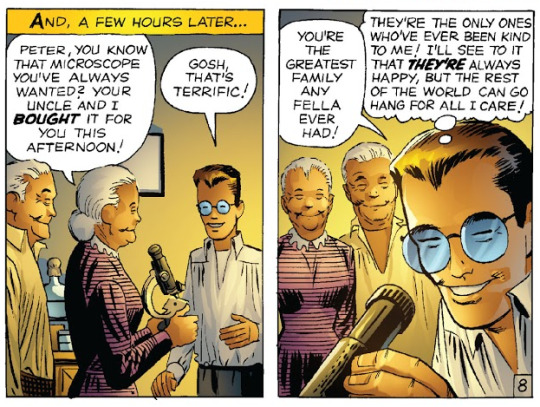
(Amazing Fantasy #15) So the concept of Peter as someone who is very aware of financial pressure and who is pretty explicitly linking money to support is present from the absolute beginning. But at the same time, there’s a kind of selfishness presented in him here -- he’s only going to take care of Ben and May. They’re the only ones he cares about here, because as he’s stated they’re the only ones who have ever “been kind” to him. Peter at the beginning of his story is very rooted in his anger and his bitterness, and it takes him losing Uncle Ben -- because it wasn’t Peter’s “job” to stop the burglar -- to get him to the point where he starts to be able to see beyond that.
Ben’s death also heightens the Parker’s financial pressures -- Ben is the primary earner in the household. (Aunt May in the original context of the early 1960s was most likely a homemaker, and as an older woman especially she wouldn’t be expected to have a job. But even moving the timescale up to a point where she would be expected as a woman to hold down a job, it’s important to note that early in Spider-Man canon Aunt May is depicted as being in very poor physical health.) While it’s not clear in the initial Spider-Man stories what Ben did, it’s clear that with his death whatever income the Parkers had coming in abruptly stops:
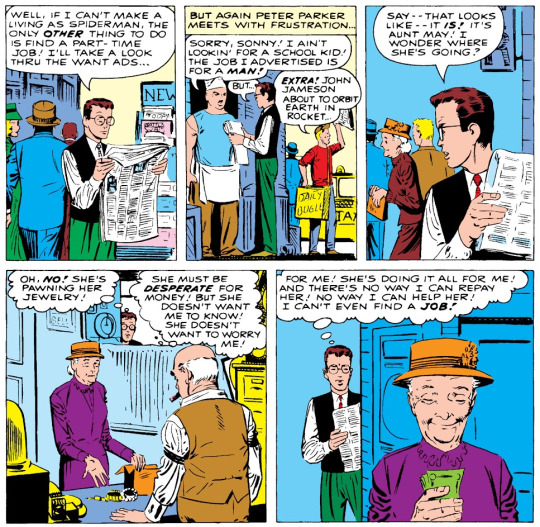
(ASM #1) This sets in concrete one of the central conflicts Peter and May have -- both of them lie to protect the other. Peter feigns being an ordinary boy in order to protect May from the stress of his secret life as Spider-Man, worried that she wouldn’t be strong enough to handle the danger he regularly puts himself in. But this is a learned behavior, and here we see that he most likely learned it from May: she doesn’t want him to worry about the very deep financial troubles they’re obviously in, so she pawns her jewelry, and she stresses to him the importance of his education. Again I have to note that there are some pretty significant social differences between the 1960s and today in regards to this story -- Betty Brant, for example, notes that she had to drop out of school and become a secretary because of her own family’s financial problems, something she’s ashamed of. So early Spider-Man is very rooted in money, class, education, and how those things intersect. I think it should be noted that the only early Spider-Man characters who are financially well-off are Liz, Gwen, and Harry. (We don’t know anything about Flash’s financial situation in early Spider-Man comics but retroactively we know his family situation is not well-off.) In high school, Liz’s father is a bigshot who owns a dining club, but later on the Allans experience financial hardship with Liz quite literally being on the streets when Peter reunites with her when he’s in college. Harry’s father is a rich businessman, but from the beginning he’s depicted as emotionally negligent, caring more about money than spending time with his son:
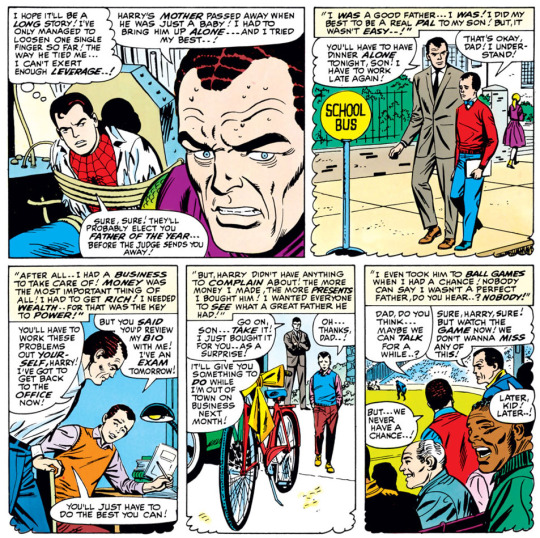
(ASM #40) “After all... I had a business to care of! Money was the most important thing of all! I had to get rich! I needed wealth... for that was the key to power!” So right away you have this link between wealth, corruption, and negligence. Norman’s pursuit of wealth is his given reason for his neglect of Harry. Later on we’d learn that Norman’s father was also abusive and that that abuse formed Norman’s ideas about power and wealth. (Spider-Man! It’s about cycles of abuse!) There’s a very contrast between Norman’s attitudes here and the Parkers loving (but poor) household. Gwen is the only exception here -- she and her father are depicted as comfortable, most likely edging into wealthy, although on nowhere the level the Osborns have been elevated to. But compared to Peter, Flash, and Mary Jane especially -- all from poor households, with MJ and Flash’s fathers both being abusive -- Gwen’s home situation is the picture of stability, both in terms of economic status and in terms of her loving and very present father.
My goal in outlining all of this isn’t to say that Spider-Man’s message is definitively “money is bad” because I don’t think it is. I think as a series Spider-Man is very aware of the comfort that money can provide. But I think there is a frequent message about excess in Spider-Man -- excess power, excess wealth. As Norman says above, in his eyes, money is the key to power. With great power, comes great responsibility. In Norman hoarding and abusing his wealth, he abuses his power. If he provides for Harry, it is solely through money -- there is no love or devotion in Norman’s money-focused world. And I think that’s important when you look at where Peter starts in his story, before Uncle Ben’s death. He’s going to use his powers to make a lot of money and he’s going to provide for Ben and May but he’s not going to care about the world outside of that. I think one of the interesting things about Peter -- and this is where Slott’s run especially fails the character -- is that he’s not interesting in getting rich. He’d like to be comfortable, for sure -- he’d like to have enough money to not have worry about it, to not have the need to hustle impede what he can do as Spider-Man, to be able to take care of his family. (And there’s some machismo stuff linked in here for him too -- in the early days of their marriage the fact that Mary Jane earns much more than him is something he struggles with.) But he doesn’t care about being rich. He doesn’t care about the money; he cares about the support that the money would bring.
That feels like a simple statement but I think it’s actually a really big distinction, especially when you’re analyzing a character. And I think it’s because Peter understands that value that it makes him so empathetic to others who have financial struggles. One of my favorite short self-contained Spider-Man stories is called Windfall, from Marvel Fanfare #42, where a mixup with a check embroils Peter in the personal affairs of a bank teller, a young single mother who is fired from her job ultimately because she refused the advances of her boss. Peter gets her her job back -- through blackmailing the boss for his other sexual affairs, which some people might think is immoral of him, but I think really speaks to Peter’s understanding of how the greater world works, and what he’s prepared to do to get bigger justice. But more importantly he uses his own money to pay the young woman’s rent, and he does it in a way where she never even knows it’s him. Because he understands her situation, the way someone who had grown up comfortable never could. And that understanding I think puts him a place where it’s more important for him to both keep that understanding and maintain that ability to act relatively freely, in the way that bigger, more prestigious positions in scientific fields might restrict him. There’s a reason he keeps getting fired from these scientific positions and it’s not that he can’t get them, because we can see from his employment history very clearly that he can. It’s because the freedom to act as Spider-Man and what he can do as Spider-Man is ultimately more important to him.
And while high school teacher is my number one favorite profession Peter has ever had, I think that his position as a newspaper photographer is also very important to the character’s history, in part because the Bugle is such a big part of his life and the connections he’s made but also because the Daily Bugle itself is important. I think it’s interesting to note that two of the biggest superheroes of all time from both of the big companies -- Spider-Man from Marvel and Superman from DC -- have had long running journalism jobs, Peter as a photographer and Clark as a reporter. I don’t think I really have to go into a whole thing about how good journalists are so important and why it matters that we have these incredibly famous mythic figures that are positioned in the roll of journalists specifically. But I do think it is important to Peter that he’s put in that position as someone who cares about uncovering the truth. So ultimately I think what I mean when I say Peter is more fulfilled by his jobs as a photojournalist and as a high school teacher than by his comparatively more high paying stints working as a scientist in a lab is that Peter gets the most fulfillment out of careers where he can actively see, day by day, that what he’s doing is helping people, and that it’s a very direct line from him to the people he’s helping. His efforts can’t be twisted, they can’t be used for other purposes the way they can within a larger organization. He has a line of control in what he can do to help other people. It’s like how Spider-Man functions best as a street level hero: what he does best is saving and helping individual people, on a case by case basis. And you can turn around and demonstrate that in his civilian life best in jobs where he gets to directly interact with people. And ultimately to Peter making that difference is more important than a better salary.
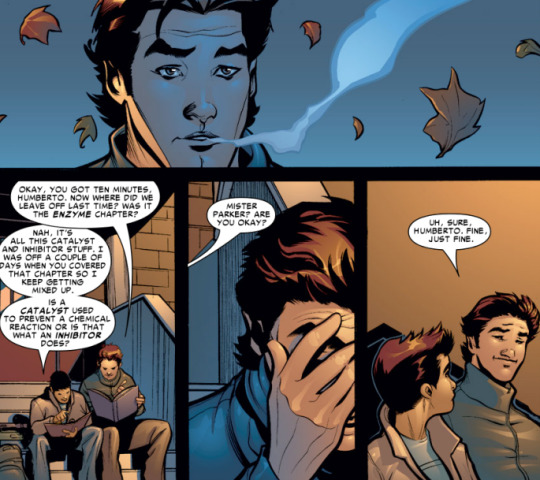
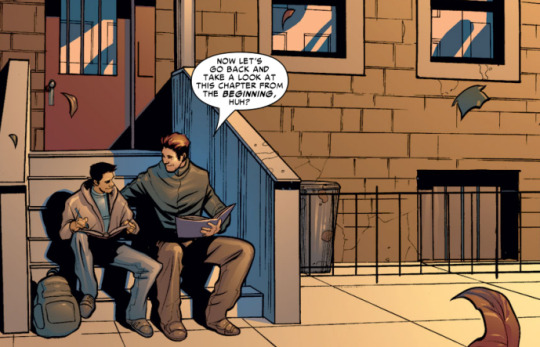
(Marvel Knights Spider-Man #9)
209 notes
·
View notes
Note
hey! i just wanted to ask what your opinion is of what john and paul's relationship was like right before john died. retrospectively, paul seems to say that they got it back together and were friendly again, almost like old times. but in quotes from right after john's death, he doesn't sound so sure and said how much he appreciated yoko reassuring him because he didn't think it was true that john still loved him. could have just been shock, but where do you think they actually stood?
oh god what a massive question.
I look at their relationship on a scale of 1-10. (It’s much more complicated in my head, but let’s simplify it for brevity’s sake.) They were at their furthest away from each other probably in 71, so let’s put 1971 on the 1 end. They were arguably the closest in, idk, YMMV but let’s say 1961 because that was the Paris trip. We’ll put 1961 on the 10 end. Depending on who you believe, their relationship in 1980 probably fell somewhere in the 5-7 range.
At the very least, they were on friendly terms over the phone. Paul’s been consistent in his story that the last phone call they had was very nice and normal. If you believe just that, I’d put it around 5; they were in some sort of process of healing, they could talk about normal things without issue. There was obviously still hurt there. Paul saying to Denny Laine the day they found out “I’ll never fall out with anyone again in my life” suggests at the very least an element of unresolved pain there. Paul’s comments to Hunter Davies in 1981 suggest some anguish on both sides as well, seemingly brought to the surface by Yoko’s quote “Nobody hurt John like Paul hurt him.” According to that conversation (which I still find totally wild that it happened at all and that Hunter published it), it seems like there was quite a bit that was left unresolved, in terms of how they’d hurt each other. But they were at least working through it.
However, there are also plenty of accounts that talk about how much John wanted to work with him again, as early as 1975, but also again in 1980. May Pang, Art Garfunkel, Jack Douglas, Linda McCartney herself! Which indicates to me that their relationship was perhaps even closer than Paul indicates by the end of 1980. Talking on the phone is one thing, but working together again... that, to me, points to them both really wanting to repair things, for real, not just chatting-on-the-phone repair. That puts it closer to a 7ish, I think. There are stories from multiple sources (Come Together: Lennon and McCartney in the 70s by Richard White has it, and I’ve seen it elsewhere too) that both Paul and John had signed on to work on Ringo’s new album in 1981. That doesn’t mean they’d be working together on it, but it does fit neatly with Jack Douglas saying that both of them were looking to hook up with each other to write at the end of 1980 but just never managed to get in touch.
In conclusion, ?????????????????????????? Definitely more positive than negative, but also definitely still some unsettled hurt on both sides, as there would be with any two people as close as they were and with as many issues as they had (not to mention how hard it was for them to talk about serious emotional things).
#this is almost certainly an unsatisfactory answer and i'm sorry#if i missed citing any sources please let me know and i will source them properly#mclennon#Anonymous
29 notes
·
View notes
Text
Love’s a game, wanna play? A meta-analysis of the game of love and Taylor’s love of games
—
Before actually getting into this, I’m obligated to make the disclaimer that this is just my interpretation of some songs. I’m not claiming to be “right” about anything. I have no way of knowing whether my observations will hold true if/when Taylor releases more music. It doesn’t really matter. There are many ways to interpret music.
Games are not the only extended metaphor in her discography; if you understand one, you don’t necessarily understand them all. This essay is an exploration of how one particular metaphor could be so effective.
In addition, I am often the first person to say that “not everything is that deep.” Yet here I am, making something deep. I was only mildly curious about this metaphor at first. In the process of documenting my understanding, I surprised even myself as I realized how rich this metaphor is.
A warning…this essay is very long. (It’s either mildly interesting or completely ridiculous and nothing in between. Likely the second.)
—
The notion of a ‘game’ is often conflated with the notion of adversarial conflict. This misunderstanding is largely due to Western structural/cultural forces. Mathematicians and economists have a passion for framing most predicaments as zero-sum, or strictly competitive, where one player’s advantageous move by definition disadvantages their opponent. But collaborative and otherwise not strictly competitive games exist too.
Taylor’s fascination with games spans her entire discography. Artistic preoccupation is reason alone to analyze her work from such an acute angle. But pleasantly, Taylor also does not share the academics’ favorite pastime. She strays away from the zero-sum bias in very unpredictable ways. In fact, she has no bias. She prefers to mix and match her language to each situation as she sees fit. Her convolution of love and games is expressive, divorced from the logical framework by which games are defined. I think examining this facet of her work with a fine-toothed comb may be especially illuminating.
It seems counterintuitive to argue that games could (or should) be anything more than Taylor’s favorite metaphorical manifestation of logos. Yet revisiting a metaphor is itself communication, conscious or not. Advancing an understanding of this extended metaphor, in my opinion, substantiates what is usually intangible about Taylor’s songwriting brilliance.
On Games
Precocious and perceptive, Taylor has, for as long as she’s been writing, placed competition, strategy, and collaboration alongside conflict. Therefore, for the sake of coherence and relative brevity, analysis is scoped only to songs with significant mentions of games, puzzles, or game-related imagery. ‘Games’ are not conflated with general fighting, trickery, toying, revenge, mention of rules/strategizing, or winning/losing. ‘Puzzles’ are not conflated with disorder; puzzle pieces must be pieces of a larger, vivid picture.
Consider football. Imagery of high school football makes “Miss Americana & The Heartbreak Prince” fair territory. Someone shouting over a football game in a bar does not qualify “Mean.” The football helmet worn in “Stay Stay Stay” is an absurd and compelling detail in context, as likely to be fictitious as it is true, and hence more significant than a televised sporting event; “Stay Stay Stay” qualifies. In essence, games are interesting as a device rather than a simple detail.
Below is a list of the songs with significant game reference(s), categorized by implied type. Note that a song can belong to multiple categories if it contains multiple references.
Generic/unspecified games: “Come in With the Rain”, “Dear John”, “State of Grace”, “Blank Space”, “Wonderland”, “…Ready For It?”, “End Game”, “Look What You Made Me Do”
Card games: “New Romantics”, “End Game”, “Cornelia Street”, “It’s Nice To Have A Friend”
Dice games: “Cruel Summer”, “Miss Americana & The Heartbreak Prince”
Board games: “Dear John”
Sports/contests: “The Story Of Us”, “Long Live”, “Stay Stay Stay”, “End Game”, “Miss Americana & The Heartbreak Prince”
Puzzles: “Red”, “All Too Well”, “So It Goes…”
Other: “It’s Nice To Have A Friend”
Like many people, Taylor habitually seeks structure to manage unpredictability. (Games provide structure for situational volatility, hence her artistic love affair with this metaphor.) The stylistic choices she makes to entertain this habit, however, are anything but consistent.
The games have a variety of different players, such as in “Dear John” and “Look What You Made Me Do.”
She does not establish strict parity between characters’ emotional affiliation and the competitiveness of a game. “Dear John” features an adversarial game. Conversely, her partner in “Blank Space” is a co-conspirator/collaborator. “All Too Well” analogizes autumn leaves as puzzle pieces; puzzles are collaborative games.
Taylor famously claims that love is a game in “Blank Space.” This song is colloquially understood to be about the love story we see play out in the media. Games can thus include all parts of her ‘love life.’ Arguably, she foreshadows this in “Long Live” by intertwining parts of her ‘America’s sweetheart’ image with professional success, which is derived from writing about love.
Taylor is not always a player in a game, such as in “Cruel Summer.” Her partner may not be either; see the crossword in “Red.”
In short, humans are unpredictable, as is love. It is clear that Taylor uses games as an incredibly powerful metaphorical device. They are a genuine reflection of her feelings about love.
Musical analysis usually begins with careful consideration of each track. Given a disparate and lengthy list of songs, it is probably more fruitful to go up a layer of abstraction. Of particular intrigue for this set of songs is the relationship between time and Taylor’s willingness to divulge more information about a metaphorical game.
We revisit the set of songs to list them in chronological order. The purely ‘generic’ songs are now bolded: “Come in With the Rain”, “Dear John”, “The Story Of Us”, “Long Live”, “State of Grace”, “Red”, “All Too Well”, “Stay Stay Stay”, “Blank Space”, “Wonderland”, “New Romantics”, ”…Ready For It?”, “End Game”, “Look What You Made Me Do”, “So It Goes…”, “Cruel Summer”, “Miss Americana & The Heartbreak Prince”, “Cornelia Street”, “It’s Nice To Have A Friend”
Specificity about a game seems to decrease with proximity to the 1989 era.
Lyrical imprecision in “Come in With the Rain,” a true outlier, probably boils down to youth.
“State of Grace” is a preamble about the themes of Red. “Begin Again,” though much later on that album, shares the same inspiration as “State of Grace.” Red is constructed as a sandwich between these two songs which present the album’s thesis. The album considered as a whole is thus a buffer for 1989.
reputation is a buffer for 1989 because the ‘generic’ game songs are heavily and intentionally front-loaded.
“New Romantics” is a coda for 1989, and its poker game reference is slightly ambiguous. What, exactly, is poker; what is all in the timing? The thematic material of “New Romantics” is most similar to that of “Blank Space.” ‘It’ is the same crude game played in the earlier track, the affair of collecting men. Perhaps this close relation subsumes “New Romantics” under the ‘generic’ game category. (Though this is a loose explanation.)
There exists an undeniable chronological pattern to game characterization. If you graphed the amount of game-related lyrical obscurity versus time, it would look like a shallow sand dune with the tip at the 1989 era. (Or a hill. Or a big pile of leaves. You get the picture.)
Armed with a basic understanding of Taylor’s career, one might say that her desire for personal privacy manifests as reticence to define metaphorical games. The 1989 era was the height of media attention on her. This caused more than a few issues. The art created around this time would have naturally reflected how she felt about the public eye. (See: the entire reputation era.)
But isn’t Taylor almost as famous as ever today? Sure, her name is not as saturated in the zeitgeist as it was in 2014. She’s still one of the world’s mega-stars. And does she not have a very private relationship today? Taylor’s work reflects her hardened personal boundaries, but boundaries alone do not explain the pattern of how she writes about games. Otherwise Lover would be filled to the brim with songs about ‘generic’ games.
To summarize, Taylor uses games as a perennial favorite metaphor to frame her experiences of love. Increased public scrutiny undoubtedly changed the way that Taylor approached songwriting; even so, fame was not a factor that changed how she wrote about games. The connection between time and types of games suggests that we cannot consider game metaphors in isolation.
On Love
The next piece of the puzzle (no pun intended) is what she shares about love. Which 1989 songs are most revealing? Technically…most of them, if you think hard enough. I’d like to draw special attention to “Wonderland” and “You Are in Love.”
Ah, “You Are in Love.” The musical gift that keeps on giving! Fitting, because true love should be too.
In “Wonderland,” Taylor says:
It’s all fun and games ’til somebody loses their mind
Shortly thereafter in the “You Are in Love” bridge, she proclaims:
You understand now why they lost their mind and fought the wars
And why I’ve spent my whole life trying to put it into words
Taylor reverses her opinion about the prospect of losing her mind for love. (The abruptness here is a consequence of a real-life relationship change, plus the fact that both of these songs are bonus tracks.) Of course, she also tells us an important connection between love and games.
I’ll pause here to say that I’m not going to turn this into a (frankly uninteresting) relationship timeline/proof post. But may the profound significance of “You Are in Love” and its subject never escape us.
“You Are in Love” is written in the second person. Taylor is the intensely guarded ‘you.’ We witness her emotional walls get broken down by her lover, the ‘he.’ Fascinatingly, Taylor departs from the second person point of view in the bridge. Suddenly, she alerts us to the presence of an ‘I.’ The bridge says that ‘you’ Taylor, whole and normal-person-in-a-relationship Taylor, finally understands true love. In the same breath, ‘I,’ writer Taylor, admits that she’s had it all wrong for years. (This is not to say that her writing pursuits before this moment were pointless.) Therefore, breaking the second person point of view to include the ‘I’ line shows that Taylor distills the nature of true love in that ‘eureka’ moment.
Yet she exposes the schism of writer Taylor and whole, normal person Taylor in a moment where, in theory, those two roles could not overlap more. Taylor has every reason to faithfully represent her feelings. Her sentiment is always sincere even though she may falsify details of a story. “You Are in Love” is (as far as I’m aware) the only song in which Taylor ever blatantly admits to writer-person misalignment. The schism must run extremely deep.
Taylor was—and surely still is—drawn to songwriting as a means to explore love. She tries to to capture its enigmatic essence with the written word. How fascinating it is that, at the very moment she communicates her deepest understanding of love, she says that the part of her that puts it into words is inherently disconnected from her spirit which feels it.
On Games And Love
We must briefly table the meta-implications of “You Are in Love” to return to the topic of games.
Love probably would have stopped feeling like a game after finding a real gem of a person who doesn’t mess with your head. (Love also probably would have stopped feeling like a game after dialing down on brazen PR tomfoolery.) Taylor has written several albums about her true love. It’s easier now to trace the arc of her feelings: it is a positive path, as anyone would predict.
Why would she continue to write about games after 1989? The obvious answer is that she likes doing it. It remains a useful metaphor.
But recall that chronology discourages us from considering metaphorical games in isolation. To clarify the principal function of the game metaphor in her discography, we must consider the writer-person dichotomy.
First, note that Taylor exposes the writer-person dichotomy in an honest, vulnerable moment. She confirms it as a human phenomenon. The phenomenon thus must extend beyond a singular moment during 1989. Distance between writer Taylor and whole, normal person Taylor—a measure henceforth called writer-person distance—is necessarily a function of time. Coincidentally, so is the measure of game-related lyrical obscurity.
Writer-person distance can grow or shrink. It was small in her youth; this is what pushed her into songwriting. It is small now, as she has told us in the albums since 1989 that true love has stitched her back together. Again, because writer-person distance is a human phenomenon, it changes slowly, smoothly. (“You Are in Love” simply marks the biggest distance.) Does this sound familiar? If you graphed writer-person distance versus time, the graph would look like a shallow sand dune with the tip at the 1989 era. (Or a hill. Or a big pile of leaves. Once again, you get the picture.)
To summarize, game-related lyrical obscurity and writer-person distance are smooth functions. “You Are in Love” is the inflection point of both measures.
With “Wonderland” and “You Are in Love,” Taylor tells us that games are linked to how she conceptualizes love. But not just any love. 🎶 True love. 🎶
At the same time, Taylor presents “You Are in Love” as a dividing line between ‘that which is a best attempt to understand something that inherently cannot be captured’ and ‘that which refines the thing that, against all odds, was captured.’ Our interpretation of games must synthesize an abrupt ‘eureka’ moment with both the measures’ gradual changes.
If we are to talk about metaphorical games, we also must talk about true love. But we know that if we are to talk about games, we also must talk about time. Vital to uniting these ideas is the revelation that Taylor conceptualizes the nature of true love as the nature of time. For doesn’t time define what is gradual and abrupt?
The most important line in “You Are in Love” is when Taylor finds it—‘it’ being love. A literal ‘eureka’ moment. This isn’t just a one-time coincidence.
Writer-person bifurcation clarifies why the game metaphor is surprisingly effective. As Taylor revisits the convolution of love and games, the metaphor morphs in tandem with her innate understanding of love.
Some Good Old-fashioned Song Analysis
Observing how games, love, and time are intertwined requires that we reject purely literal interpretations of game-related lyrics after “You Are in Love.” Of course, literal interpretations are still generally useful, even correct. Games are literal, so references to them should be interpreted as such. Also, lyrics about games are probably Not This Deep in reality. We didn’t have to do all this work to realize what songs might belong in conversation with each other; identifying lyrical callbacks would have been sufficient. Treating game lyrics as purely literal limits how we might decipher a recurring metaphor. Without the notions of game specificity or writer-person distance, we would lack a framework with which to fully interrogate how these songs are are connected (i.e. through time). And, after all, the ultimate goal is to understand why the game metaphor is so successful. But, I digress.
(We’ve also made it this far and we might as well keep going. Another couple thousand words…don’t threaten me with a good time, amirite?)
To observe how games, love, and time are intertwined, I propose the following rule of thumb: A game reference before “You Are in Love” is Taylor’s description of love, whereas a game reference afterwards is a pointer to past instances of that game. Such a reference is metaphysical, or more appropriately, meta-lyrical. If she’s referenced a game already, she knows how to use that reference again. If she introduces a new reference, she’s planting it for future use.
We can group the songs after “You Are in Love” by game type:
Generic/unspecified games: “…Ready For It?”, “End Game”, “Look What You Made Me Do”
Dice games: “Cruel Summer”, “Miss Americana & The Heartbreak Prince”
Card games: “New Romantics”, “End Game”, “Cornelia Street”, “It’s Nice To Have A Friend”
Sports/contests: “End Game”, “Miss Americana & The Heartbreak Prince”
Puzzles: “So It Goes…”
Other: “It’s Nice To Have A Friend"
Analysis requires precision. We should pare down the duplicates, if possible.
“It’s Nice To Have A Friend” is tricky because it’s naturally sparse. “Video games,” for example, are more than a simple detail: they are an essential part of creating a childhood vignette. “Twenty questions” and the card game “bluff” function analogously in the later verses. The brilliance of this song lies in how Taylor illustrates the development of companionship and intimacy. The verse about marriage is the most significant verse because it reveals the meaning of the whole song. Thus, we may take the bluff to be more important than twenty questions, which is more important than video games. “It’s Nice To Have A Friend” ultimately belongs in the card game category.
Central to the pathos of “Miss Americana & The Heartbreak Prince” is the “stupid” dice game lyric. Of equal importance is the portrait of Americana, painted with lyrics about Friday night lights. This song truly belongs in two categories.
At the end of “…Ready For It?” Taylor fires a starting pistol, letting ‘generic’ games begin. “End Game” follows and we assume it must pertain to the same game. So Taylor intentionally places this song in the first category. The hook has lyrics about a varsity “A-team,” though this is probably just a nod to Ed Sheeran. The other truly interesting game-related lyric is the one about bluffing. Thus, “End Game” also belongs in the card game category.
Here’s the new list:
Generic/unspecified games: “…Ready For It?”, “End Game”, “Look What You Made Me Do”
Dice games: “Cruel Summer”, “Miss Americana & The Heartbreak Prince”
Card games: “New Romantics”, “End Game”, “Cornelia Street”, “It’s Nice To Have A Friend”
Sports/contests: “Miss Americana & The Heartbreak Prince”
Puzzles: “So It Goes…”
Each of the four obvious groups of songs illustrate a different way Taylor weaves the natures of true love and time together:
Déjà vu: “So It Goes…”
Hindsight/wisdom: “…Ready For It?”, “End Game”, “Look What You Made Me Do”
Fate: “Cruel Summer”, “Miss Americana & The Heartbreak Prince”
Progress: “New Romantics”, “End Game”, “Cornelia Street”, “It’s Nice To Have A Friend”
Déjà vu
The puzzles category only contains one song, making it easiest to analyze. The namesake of “So It Goes…” is Kurt Vonnegut’s Slaughterhouse Five, famously constructed like a mosaic. Puzzles are central to the meaning of this song.
“All Too Well” contains the first instance of a puzzle metaphor in her discography:
Autumn leaves falling down like pieces into place
Taylor calls back to “All Too Well” in the chorus of “So It Goes…”
And our pieces fall
Right into place
Get caught up in the moment
Lipstick on your face
By referencing a previous song using identical phrasing, Taylor creates the illusion of a sudden ‘déjà vu’ moment. The effect is similar to “You Are in Love,” where she reaches sudden enlightenment.
Sonically and lyrically, the “moment” she gets caught up in is implied to be the one in which she gets lost in passionate sex. The déjà vu moment could be this moment, but it doesn’t have to be. Déjà vu is agnostic to the present in the sense that the feeling can be triggered in the strangest of times. The déjà vu moment is whatever prompted her to write this song.
This game lyric connection clearly shows how a moment of love is defined by a moment of time.
Hindsight/Wisdom
The bombastic group of singles, “…Ready For It?”, “End Game,” and “Look What You Made Me Do,” sets the tone for all of reputation. The ‘generic’ games in these songs are the same as those in 1989, particularly the crude (and, in Taylor’s case, often interchangeable) games of celebrity and dating. In “Blank Space,” Taylor spells out in gory detail what she does as an agent in the celebrity dating game. She does not explicitly define the rules of that game, though. It remains sufficient for her to prove that she knows how to play by them. (Musically, this is far more interesting.)
We know that the reputation singles’ literal proximity to 1989 indicates Taylor’s direct emotional response the previous era. The consequences of a ‘fall from grace’ underpin the entire reputation era. Therefore, Taylor uses lyrical connections from reputation back to 1989 to illustrate hindsight. She tells us what she learned from her mistakes and what she wished she would have done differently.
But first, she gets to be salty about it. In “Look What You Made Me Do,” Taylor laments the fact that she participates in public games to appease others. (Because, really, withdrawing from the celebrity circus would immediately solve a lot of her problems. Alas, megastardom is a Venus flytrap.)
I don't like your little games
Don't like your tilted stage
The role you made me play
Of the fool, no, I don't like you
Let’s return to “Blank Space” for a moment. Taylor’s boyfriend in “Blank Space” is considered a co-conspirator/collaborator with her in the celebrity dating game. Central to our understanding of that song, however, is the unequal power dynamic. Taylor is the strategic mastermind, whereas her boyfriend is just along for the ride. The two are on the same team, but they are not equals.
Taylor actually leans further into the games of the 1989 era in “…Ready For It?”
Baby, let the games begin
Unlike in 1989, her partner is an equal on her team:
Me, I was a robber first time that he saw me
Stealing hearts and running off and never saying sorry
But if I'm a thief, then he can join the heist
And we'll move to an island
She then connects “…Ready For It?” to “End Game”
Baby, let the games begin
Are you ready for it?
//
I wanna be your end game
Both Taylor and her partner are forced to play the same game and they share share the same goal. Her partner’s “end game” is Taylor; thus, Taylor keeps her true love by beating the celebrity dating game. They have to work together to achieve this difficult task.
Though the celebrity dating game is not true love, it impacts Taylor’s relationship with anyone who could be her true love. In hindsight, Taylor realizes how media games blew up in her face. It is wisdom—to keep her relationship private, to dial down on PR tomfoolery, to prioritize her happiness—that helps her pre-empt these problems for the reputation era. And indeed we understand the love story of reputation as the lovers’ prolonged attempt to hide from the public eye.
Hindsight comes with the natural passage of time. One only accrues wisdom, however, when they apply the lessons of hindsight to make better judgements about the future. Games again unite the ideas of love and time; they elucidate how Taylor uses wisdom to protect someone she loves.
Fate
“Cruel Summer” and “Miss Americana & The Heartbreak Prince” highlight the elegance of the meta-rule of thumb.
The dice game in “Cruel Summer” is a unique incarnation of the game metaphor because Taylor doesn’t confirm whether she is directly involved in this game:
Devils roll the dice
Angels roll their eyes
What doesn’t kill me makes me want you more // And if I bleed you’ll be the last to know
The song doesn’t reveal much about the nature of the dice game other than the fact that it is competitive. It could be a fitting description of what is going on in Taylor’s personal life. It may not be. What is more important is that Taylor positions herself as collateral damage of the outcome of the game.
This is also the dice game’s first appearance. By our rule of thumb, this lyric exists only to be a link to “Miss Americana & The Heartbreak Prince.”
“Miss Americana & The Heartbreak Prince” belongs to two different game categories, sports/contests and dice games.
First, dice games. We get a few more answers about the nature of the “Cruel Summer” competition:
It's you and me
That's my whole world
They whisper in the hallway, "she's a bad, bad girl"
The whole school is rolling fake dice
You play stupid games, you win stupid prizes
It's you and me
There's nothing like this
Miss Americana and The Heartbreak Prince
We're so sad, we paint the town blue
Voted most likely to run away with you
Both Taylor and her partner are forced to play the dice game by virtue of being metaphorical students. As a disgraced and about-to-be-vagrant prom queen, Taylor has finally realized that winning the school’s dice game is not worth the price of a ‘fall from grace.’
Next, sports/contests. With the understanding of these lyrics as pointers to her previous songs, sports/contests harkens back to “The Story of Us,” “Long Live,” and “Stay Stay Stay.”
“The Story Of Us” suggests that a shared quality of sports/contest metaphors is that conflict is nuanced, even hidden to outsiders:
This is looking like a contest
Of who can act like they care less
In “Stay Stay Stay,” football is connected to (for lack of a better word) violence, conflict that could result in emotional and physical harm:
I'm pretty sure we almost broke up last night
I threw my phone across the room at you
I was expecting some dramatic turn away
But you stayed
This morning I said we should talk about it
'Cause I read you should never leave a fight unresolved
That's when you came in wearing a football helmet
And said, "Okay, let's talk"
Finally, “Long Live” blends the ideas of small town Americana with Taylor’s personal and professional life:
I said remember this moment
In the back of my mind
The time we stood with our shaking hands
The crowds in stands went wild
//
I said remember this feeling
I passed the pictures around
Of all the years that we stood there on the sidelines
Wishing for right now
We are the kings and the queens
You traded your baseball cap for a crown
When they gave us our trophies
And we held them up for our town
And the cynics were outraged
Screaming, "this is absurd"
'Cause for a moment a band of thieves in ripped up jeans
Got to rule the world
The backdrop of “Miss Americana & The Heartbreak Prince” is not just any part of America. The juxtaposition of idyllic parts of American life with frictional, violent, yet sometimes subtle forces tells us that the song’s backdrop is an American culture war. It is conflict which unsettles everyone, but by nature hurts only some.
In totality, the function of the dice game metaphor is to position Taylor as collateral damage of an American culture war. (Chew on that one for a bit.)
Again, we probably could have surmised this by examining the lyrics closely. The song lends itself to being a signpost in the Lover chronology. It seems too autobiographical to be anything different. We all remember 2016.
However, “Miss Americana & The Heartbreak Prince” sticks out like a sore thumb from the album’s theme of “a love letter to love itself.” Revisiting games as a glue between love and time expands on the purpose of “Miss Americana & The Heartbreak Prince” in Lover.
The “Cruel Summer” bridge contains this lyric understood to be about her true love:
And I snuck in through the garden gate
Every night that summer just to seal my fate
Taylor identifies “that summer” in the 1989 era as the moment which she sealed her fate. Implicit in this confirmation is her perspective from the future. She is looking back on 1989 from the time when her terrible fate has just been realized.
The moment of realization is—you guessed it—the chorus of “Miss Americana & The Heartbreak Prince.” The chorus depicts post-prom queen defamation. Taylor is aware of every single action (many, probably deliberate) that helped her achieve royalty. She never divulges them. The song is scoped only to the time when she lives her fate.
We usually take observations about fate and love to describe how two souls are bound to each other. Taylor does not tell us much about her lover in “Cruel Summer” sans the fact that the shape of their body is new. Paying special attention to games reframes “Miss Americana & The Heartbreak Prince” within the Lover theme as a commentary on fate. However, the emphasis of fate should not be on her lover. The dice game connection tells us that Taylor views “that summer” in the 1989 era as the time when she sealed her fate as collateral damage in the American culture war. From the “love letter to love itself” perspective, the moral is that passion and excitement can make lovers forget the immutability of individual destiny. If you are fated to be with someone, both of you are at the mercy of whatever the world has in store for the partnership and you as individuals.
Progress
An eclectic group of songs shares a reference to bluffing in a card game. The game metaphor beautifully stitches these songs together into parts of the same story.
The first and most detailed description of the card game is in “New Romantics”
We're all here
the lights and boys are blinding
We hang back
It's all in the timing
It's poker
He can't see it in my face
But I'm about to play my ace
A bluff in poker is an attempt to trick one’s opponent into thinking one has a better hand than they do in reality. The opponent may call their bluff and challenge them to prove their hand is as good as they advertise.
Bluffing requires deception, often telegraphed by facial expressions. Here, Taylor says that she is good at bluffing because she doesn’t let her façade crack. She is not truly bluffing, though, because she possesses an ace, presumably part of her even better hand. Her opponent has called her perceived bluff to prompt to her to reveal the ace.
The opponent, “he,” behaves as though Taylor is bluffing. Taylor, strategic as ever, is prepared to counter by revealing the most powerful card. We should thus interpret this metaphor as the ‘bluffer’ exceeding expectations. (Remember that the first instance of a metaphor is a base case, so we must take its meaning more literally.)
Likewise, in “End Game” and “It’s Nice To Have A Friend”, Taylor is the bluffer:
You've been calling my bluff on all my usual tricks
//
Call my bluff, call you "babe"
However, “Cornelia Street” allows room for the interpretation that both Taylor and her lover are bluffers:
Back when we were card sharks, playing games
I thought you were leading me on
I packed my bags, left Cornelia Street
Before you even knew I was gone
But then you called, showed your hand
I turned around before I hit the tunnel
Sat on the roof, you and I
Taylor may have also been a trickster: “then you called” could refer to the lover calling Taylor’s bluff.
The recurring bluff metaphor coincides with progress or forward momentum in a relationship.
Recall a previous discussion of “New Romantics.” We defined the “it” which is “all in the timing” as a reference to finding romance. “New Romantics” is set in a club with a dance floor, boys, and blinding lights. It’s the kind of setting conducive only to landing one-night stands. Taylor plays games with someone in the club, but exceeds expectations for the outcome of that game. What was flirting or courting becomes something more serious than a one night stand (i.e. an actual relationship). The act of calling a bluff in a card game engenders (relationship) progress. Yet again, what is intrinsic to time is intrinsic to love.
This observation fits with each song.
reputation charts the development of Taylor’s relationship, but the card game bluff in “End Game” is at the beginning of the album. That’s exactly why this lyric works so well. Her relationship is still new, nonetheless significant, after 1989. Her verse mixes these ideas:
I hit you like bang
We tried to forget it, but we just couldn't
And I bury hatchets but I keep maps of where I put 'em
//
And I can't let you go, your hand print's on my soul
The “End Game” bluff represents how Taylor goes from wanting a steady relationship to wanting everything.
You might be able to see where this is going. “It’s Nice To Have A Friend” is the ‘discographical endpoint’ of the bluff metaphor. The verse about marriage delivers the song’s emotional punch:
Church bells ring, carry me home
Rice on the ground looks like snow
Call my bluff, call you "babe"
Have my back, yeah, everyday
Feels like home, stay in bed
The whole weekend
Notice, however, that the bluff metaphor occurs after the implied wedding. This is actually a beautiful sentiment. Intimacy, trust, and commitment are ongoing; growth doesn’t stop with a ring on a finger. The bluff, which represents delivering on promises and exceeding expectations for love, powers the relationship forward.
All signs point to the “Cornelia Street” bluff as the one that may have led to marriage.
Back when we were card sharks, playing games
I thought you were leading me on
I packed my bags, left Cornelia Street
Before you even knew I was gone
But then you called, showed your hand
I turned around before I hit the tunnel
Sat on the roof, you and I
So emotionally charged is this scene that we have to wonder what, exactly, Taylor’s steady partner could do to make her (1) walk out if she were being led on and (2) come back so quickly.
The most intriguing detail about this card game is that both parties may have been bluffing. The lover is leading Taylor on, but Taylor does not stay to call the bluff. She leaves. Usually in poker, one would not want their opponent to be able to prove the bluff with a good hand. (Think back to the ace in “New Romantics”.) But what if both players are on the same team at the end of the day? Calling a bluff is now setting oneself up for potential disappointment. Taylor walks out because she is frightened by the mere possibility of being let down.
Taylor is also bluffing, but her lover doesn’t let her walk away so easily. They pull out all the stops and concede their hand in a desperate attempt to get Taylor to turn around from the tunnel. It works. By our understanding of the bluff metaphor, the lover exceeds all of Taylor’s expectations. The events that transpire on the roof presumably are when Taylor reveals her own cards.
The topic of marriage fits with this emotionally charged scene. Of course both lovers would tiptoe around the topic and be scared to reveal their true feelings.
So following the bluff metaphor helps us follow the course of true love. Calling and revealing a bluff is the catalyst for Taylor’s relationship. However, it also is the nature of time which underpins progress.
I concede that interpreting the bluff metaphor as the catalyst of a story makes it vulnerable to any truth-fuzzing. Perhaps Taylor hasn’t ever written about a real-life engagement or marriage. We have no way of knowing. We instead should take comfort in the fact that her lyrics are beautiful and music is open to interpretation.
On Writing
Our beliefs about love are bound to change over time. As a writer, Taylor is in a unique position to capture this change by revisiting a metaphor.
Take “It’s Nice To Have A Friend.” The song is written as a series of vignettes to define the qualities of love that remain consistent while relationships change over time. The middle vignette, with its reference to “twenty questions,” could very well point back to the same day as the “Cornelia Street” card game. Feelings reoccur in certain moments—déjà vu. The first vignette is a picture of childhood. The last vignette is a picture of adulthood. Therefore, it seems just as natural to interpret the middle vignette as a picture of adolescence or young adulthood. Light pink skies, back-and-forth conversations, and brave, soft moments of intimacy illustrate a coming-of-age experience. The same moment that pulls Taylor forward in her relationship is the one that also pulls her back to a different time.
Then the coming-of-age experience is reminiscent of the portrait of Americana, the Friday night lights, marching band, and high school prom. During adolescence, we only have an inkling of our futures. We are less aware of all the ways we are connected to others and our world. Young and impressionable, our only job is to live, to change, to make memories and mistakes. Memories and mistakes define what was, and experience creates wisdom that shapes what will be. So Taylor captures this duality in fate. The moment a fate is realized is a moment that is equally a fossil of the past and a forecast for the future. The moment it all makes sense…eureka!
As an artist, Taylor’s job is to communicate her human experience. Listeners decide whether or not she successfully telegraphs what is universal about it. However, Taylor is no more of a spokesperson for the universal human experience than anyone else. She simply possesses the talent, work ethic, and privilege to make a career of it.
Consider Taylor’s own summary of the past decade:
I once believed love would be burnin' red
But it's golden
She consciously and elegantly edits her previous beliefs about love. (Obviously, she may plant callbacks to previous songs purely for fun. This one is certainly sincere.) These lines illustrate the craft she has worked hard to develop.
Manifested in her craft is the need to revisit her ideas. It seems as though certain recurring metaphors have become the only way for her to accurately capture some parts of love. They become self-perpetuating. Unforced yet expressive subconscious consistency constitutes artistry. It is artistry which compels us to believe in the universality of music.
The self-perpetuating love/games metaphor is especially fascinating. It is one of the purest examples, though perhaps also one of the strangest, of how writing about love engenders new experiences of it. Taylor translates love into game language. Games illustrate duality. Duality is love.
Perhaps this conclusion is something others already know about Taylor’s talent. I’ve never quite been able to put my finger on it until now.
To me, it seems like the songs are writing themselves.
43 notes
·
View notes
Text

tagged as: v;the jensaarai bounty hunter
Arrie Gâtecœur of Ealor was more or less born into The Imperial Era - she doesn’t really remember a galaxy before the First Galactic Empire. She doesn’t remember a galaxy before Order 66 was executed. In fact, Arrie had come to believe the Jedi had been nothing but mythical warriors of an era long gone, despite the fact that her birth occurred just before the First Battle of Geonosis.
Things were relatively peaceful on the Gâtecœur family's corner of the temperate planet. Learning how to hunt, track, and live off the land at an early age, Arrie and her family made what they could trading with local farmers. That all changed when a group of pirate slavers suddenly attacked them, their neighbours and their homes. They had heard of these horrific raids, but never had they thought that the pirates would seek them out - they were simple folks. Why would pirates want anything from them?
Arrie got separated from her family, and was thus captured at the young age of 12. She was sold off to a research facility in the Parmic system, where the scientists there began experimenting on her and other young captives, trying to splice their genes with shi'ido DNA in hopes that the survivors of the experiments would go on to become the perfect assassins for the Empire, able to blend in to any environment they're thrown at. However, most didn't survive the initial splicing... Except for Arrie, that is. The experiments left her horribly scarred and in insane amounts of pain, but she soon had shapeshifting abilities that were much like the shi'idos - though her human body imposed limitations - along with their telepathic abilities. Unbeknownst to her at the time, the only reason she survived was because she was Force-sensitive.
Time was hard to keep track of on the facility, but one day, a group of captured members of the Black Bha'lir came to the facility. Some were much older than the previous captives, but allegedly the scientists wanted to test some theories and needed older subjects. This move on the Empire's part proved to be the downfall of the research project, as the Black Bha'lir successfully sent in a rescue team, killed the researchers and took Arrie along with them, fleeing to the criminal haven of Socorro and laying low for a while. The Black Bha'lir treated Arrie as one of their own, and after she explained her story to them, agreed to help her return home.
When Arrie did return to Ealor, she found a Jensaarai defender waiting for her in the ruins of her family home. Arrie was devastated to learn that her parents had died protecting her siblings, and that if the Jensaarai hadn't arrived when they did to fend off the remaining pirates, her brothers would have either shared their fate or hers. Arrie's Black Bha'lir escort however did not trust the Jensaarai defender, believing the group to have been executed long ago by the Jedi during the tail end of the Clone Wars. The Jensaarai went on to explain how Arrie managed to survive the gene splicing she experienced, despite it being impossible for them to have known such things. Arrie demanded to be brought to see her brothers as proof that the Jensaarai was being truthful, and the trio embarked on a trip to Susevfi. There, Arrie learned that she wasn't the only member of her family who was Force-sensitive, and said goodbye to her Black Bha'lir friend, who promised her that she always had a place amongst them.
From there, Arrie began her years training with the Jensaarai, whom were forced to stay hidden thanks to Jedi hunters and Inquisitors. She learned how to make Jensaarai armor "...using Sith techniques for working cortosis". Her Force training included "... being able to effectively mask (her) presence in the Force", as well as "... a unique power they called ballistakinesis". In 1 ABY, Arrie completed her training, and built her Nexu-inspired armor as a rite of passage in earning her rank as a Ring Defender. As a Ring Defender, she was also given her ship - an old and worn T-6 Shuttle she named Cloudfall. From then until the Battle of Endor, Arrie was amongst the Jensaarai that conducted periodic raids and ambushes on nearby Imperial garrisons.
Arrie and her brothers' lives would once again drastically change after the Battle of Endor though. A group of pirates known as The Invids sent out a message to the Jensaarai, stating that they were free from the Empire's oppression and persecution. Furious with the Jensaarai's decision to trust a bunch of pirates, after all they had been through, the 3 eldest Gâtecœurs left Susevfi in 4 ABY and went their separate ways, all of them hoping to find someone to help them make the Jensaarai see the error of their ways. Arrie decidedly enlisted herself to join the Mantis Syndicate - a house of the Bounty Hunter's Guild well-known for their specialty in hunting pirates.
The year is now 9 ABY. Arrie is trying to build up enough money and reputation as a bounty hunter to hire some people to go and rid Susevfi of its Invids pirate occupation. Despite the fact that the Jensaarai "...were told that the Jedi were dark siders, and that the Sith were champions of the light", and even had the roles of Darth Vader and Obi-Wan Kenobi mixed up, Arrie has long ago learned that those teachings were wrong, and has thus become even more disillusioned with the Jensaarai since her self-exile. Despite still wearing her Jensaarai armor and wielding her lightsaber weapons still, Arrie will vehemently call herself an ex-member, and will be even more offended at being called a Jedi, despite having learned the truth about them.
Key details about this verse:
Arrie is a polyglot. She's fluent in Galactic Basic Standard, Caamasi, Rodese, Socorran, Ealoran, Mando’a and Bocce. She can also speak in broken Huttese and Tusken. If asked what was the easiest to learn, Arrie would say Caamasi - she had been the apprentice of a Caamasi, and they had formed a strong enough bond to where Arrie was able to learn the language through memnis.
Arrie’s main fighting style is a Tràkata / Sokan / Form VI: Niman hybrid, with a pinch of Dun Möch. She prefers using lightsaber pike combat, but is also trained in Jar'Kai and saber throwing.
On top of the Force powers taught by the Jensaarai, Arrie is naturally gifted at animal bonding. Other Force abilites she has includes Force barrier, Force listening (used to hear at great distances only), Force throwing, precognition, psychometry (one of her weaker abilities though - doesn’t often happen through her own will, and if it does, it takes A LOT out of her), Tapas, Force fear, and Force crush
Arrie owns a double-bladed lightsaber pike, with one lightsaber end NOTABLY shorter than the other - think of the other end as more of a spiked pommel. The handle is made of phrik and measures 5 feet long. When both blades are activated, Arrie’s weapon is taller than her by a few inches. Despite that, she’ll often use it without the sabers being activated to hide the fact that she's an ex-Jensaarai. Arrie’s saber emits a yellow glow.
Along with her pikesaber, Arrie also owns a WESTAR-35 blaster pistol, a modified cycler slugthrower rifle, and various knifes with different purposes. Her weapons stay on her person practically at all times.
Arrie’s armor is modelled after a Nexu. It’s a cream white colour with dark stripes. Some features include 4 red “eyes” in the helm with built-in macrobinoculars and infrared vision, retractable claws, a whipcord launcher, and a crest of blue quills that adorn the top of the helm. There’s also a line of blue quills that go along her spine, but they’re retractable for practicality’s sake. More often that not though, Arrie wears a cloak over her armor to hide the majority of its details.
Arrie's T-6 Shuttle, Cloudfall, was retrofitted with two laser canons and a shield generator when she first received it. She also redid the interior entirely. Given that T-6's have a “… spacious interior provided for reasonably comfortable space travel”, Arrie would’ve fixed that part of the ship up so that it had 2 main sections - one for storage (holding cargo, supplies, weapons, with possibly some makeshift space for passengers), located closest to the loading ramp and taking up the majority of the ship’s spacious interior, and personal living quarters, located near the cockpit. As for the exterior, definitely not done in the red and white you see in pretty much all pictures of the T-6 - she more likely to have had the paint job done in a light grey, blue and yellow.
Due to Arrie’s heavy scarring, she got herself accumulated a series of tattoos through her Black Bha'lir connections to help cover them up. For sake of brevity, the tattoos look like her markings in her canon true form, except that the smoke goes along both of her arms and her spine, and does not move. Scars wise, she has a lot of medical scars from her time being gene spliced, such as a long scar along her spine, a scar line along her legs and arms, a line straight down the centre of her torso, and a line across her chest. She also has a scar just underneath her left eye from a lightsaber training accident. Arrie’s canon burn scar on her right side is present, but is from another training accident where a student figured out how to use Force lightening. All of her shapeshifting accident scars, including her wing scars, are also present, but any other canon scars are not.
#verses#v;the jensaarai bounty hunter#(( she's a long one but HO BOY AM I PROUD OF IT ))#(( also i'm gonna work on slowly moving all of Arrie's verses from a page to a bunch of text posts to help mobile users ))
3 notes
·
View notes
Text
Thoughts on Writing Trauma in [Fan]Fiction
For some reason, I’ve been thinking a lot about the inclusion of trauma in fiction, namely fanfiction. It’s one of those things that so often pops up in fic but just because it’s done often doesn’t necessarily mean it’s done well. I feel like this is especially true for writing original characters.
Precursory trigger warning for speaking about, you know, trauma (suicide, self harm, eating disorders, death, etc.) in depth. As you can probably already predict from the title. Full text under the cut for brevity’s sake.
Traumatic experiences and backstories are like this rite of passage in fanfiction. Most everyone’s earliest original characters are always given the most heartbreaking, terrible backstories possible because we, as authors, think that that will make our readers more sympathetic to them. I say this as someone who is definitely guilty of this myself. And this is all well and good--some of the most popular mainstream characters come from terrible backstories. It can help explain why characters do what they do and act the way that they act when they are first introduced in a story, and provide space to allow them to grow and evolve throughout the plot (for better or for worse).
I think the issue in giving a character a traumatic backstory, however, lies in the way that this is presented. So often I feel like tragic backstories are used to try and force readers to empathize with and love a character. It’s the almost overbearing sense of “please love me” that I think can cheapen the effect of this developmental tactic. You can’t force an audience to love a character and laying it on thick with why the audience should love your character often seems to do the exact opposite. Readers don’t like to be told what to do or what to think or who to root for. Your character has to prove that they are worth rooting for, or not, based on the way that their past influences their present and the fate of their future. A character who was neglected by their parents as a child is obviously going to be desperate for affection, but think about how it makes them desperate. Do they find themselves constantly in abusive relationships because they are willing to take whatever they can get from whoever will dish out “love” to them, regardless of whether it’s healthy or not? Or because they find comfort in a sense of abuse based on past experiences? Or in contrast, do they push everyone away because they are terrified of letting themselves be loved and opening themselves up to getting hurt again? I know every writing class ever always harps on the “show, don’t tell” but this is one case where I feel like it’s really important. Readers are not stupid. We don’t need to be told straightforward why a character is doing what they’re doing, and sometimes laying everything about a characters past out from the get-go can even dampen the allure of your character. Let the readers learn about the character at the same pace that they would let someone else learn about them. Human beings don’t give away their entire life story in one sitting, and your character shouldn’t, either.
Not only are traumatic backstories so common in fiction, but so are traumatic plotlines. It’s fun to put your characters through hell! It’s fun to break them down and see them at their lowest, when they are left with nothing. After all, conflict is the gasoline which fuels the car of your story and sometimes you never really know what a character is capable of until you break them. I feel like the most symbolic and succinct way to describe this is through that quote “Your characters are like geodes. If you want to see what they're really made of, you have to break them.” However, trauma is a tricky subject. There is a fine line between being authentic and meaningful in dissecting traumatic experiences and laying it on too heavy for the sake of being edgy. I feel like that’s another mistake so many early writers make: feeling as if you have to put your character through ten layers of hell in order for the audience to care about them, too. But this is a dangerous game and trauma is a very personal thing. You don’t want to write insensitively about something very significant at the risk of alienating or even maddening the communities that have personal experience with whatever trauma you’re exploring--if you haven’t experienced it yourself, too, that is. I am a huge supporter of using fiction as catharsis for coping with and processing trauma and anything else troubling that you as a writer may be dealing with, and every situation is different so of course your specific experience will not fit everyone’s narrative of how that trauma may transpire. And if you have been through this sort of thing personally, of course you can be trusted with writing candidly and authentically about it because those are your experiences and no one can steal those from you! You deserve to approach the subject in whatever manner you feel is best for both the story and your own mental wellbeing. For those aiming to write about trauma that they don’t have personal experience with, however, it is so important to write these scenarios with respect. Please do your research, read personal accounts and familiarize yourself with all the ins and outs of what you’re aiming to write. Read up on what it’s like to attempt suicide, what happens after a failed suicide attempt or self harm gone wrong, what to do when you suffer a miscarriage, what grief feels like, what a panic attack feels like, the challenges that chronically ill people face every day and the things that can go wrong when we have flare-ups or are not given the accessibility we need. Don’t trigger yourself, of course, but make sure you are well informed so that you can write trauma in a way that is respectful and authentic.
I am also not going to sit here and tell you not to stack trauma onto a character in a story. I know that life happens and sometimes multiple bad things pile up all at once. Fiction is no different and it’s certainly not uncommon to see a string of bad things befall a character in a story, either. The thing that is important to consider with this, however, is not only respect and authenticity but the way in which these sorts of things would realistically affect someone. The domino effect should feel believable.
For example: character A gets a phone call that character B, their best friend and love of their life, has unexpectedly been killed. This is a traumatic experience enough on it’s own, and the story deserves to explore this character’s consequent grief as they try to navigate their life with this massive hole in their heart now. Perhaps the last thing that character B told character A was something about unwavering support for A in the pursuit of their lifelong dream, something that holds weight and that the grief of losing B can serve as both an obstacle and a motivator for achieving. Familiarize yourself with the after effects and symptoms of mourning in order to write character A’s grief as authentic. Say, for example, they are having trouble sleeping. They are constantly tired but can never fall asleep when they want. They are driving somewhere a few days later and begin dozing off at the wheel. They subsequently get into a nasty car accident. Character A ends up in the hospital with severe but not life-threatening injuries--injuries that completely erase any and all hope of character A ever achieving their dream. What does this loss feel like? How heavy is the betrayal in their chest after having felt so determined to fight against the grief weighing them down in order to accomplish their goals for the sake of character B’s memory? Consider the emotions. Consider the anger and the hopelessness and the depression. Consider what your character decides to do about this. Consider how your character attempts to cope. Perhaps they turn to self harm. Perhaps they feel that the only way that they can manage the pain that they feel is by cutting. Maybe they even think that if they make themselves bleed, it will give an outlet for all of the pain that’s stirred up inside of them. Maybe they even feel as if that pain is deserved, as if everything is their fault (whether it realistically is or not). Maybe they revel in the pain, maybe it becomes the only thing that keeps them sane even if they logically understand that this is unhealthy and dangerous. And maybe their emotions get the better of them and they accidentally take things too far. They accidentally attempt suicide and wake up in the very same hospital they were in when they got into the car accident. The very same hospital where character B was also pronounced dead. Focus on what this means for the character and the story. We as the audience should be able to understand why this character felt like it was necessary to do what they did and what they were feeling in the moment of having made that decision, as well as how having failed will influence and effect them moving forward. That progression should be clear and visible, it should be easy for the audience to track and follow the plot of.
And while writing trauma can be fun and interesting, on the same note of authenticity it is also important to ensure that we are not glorifying trauma, either. We should not be presenting these situations as fabulous deaths and drama. Trauma is a very real and very heavy thing that should be handled with care for the sake of respecting both the characters and the readers. Readers who have gone through similar trauma should not feel as if their struggles are being written as a joke or not taken seriously. They should be able to empathize with the character even if the struggles presented in the story do not exactly mirror their own. Like I said before, the trauma should be believable. And readers who do not have experience with these subjects should not feel inspired by the trauma itself. It is one thing to present a character who is perseverant despite their setbacks, who pushes forward even when it would be easier to quit, and even when they want to quit, but it is another thing entirely to present a character who glamourizes these struggles. A character with an eating disorder should not be seen as an aspiration for thinness and a character who self harms should not be seen as “edgy” and “cool” for hurting themselves. If we are going to write about trauma, we should accept the responsibility that comes with writing subjects in a way that is respectful and authentic rather than glamourizing trauma.
We as writers, however, should not accept the responsibility of censoring ourselves for the sake of a reader’s preference, by the way. We can include trigger warnings and tags all we want, and I think we ought to for the sake of being responsible and letting our readers know exactly what kind of story they are getting into, but that’s just the thing. The reader should know what kind of story they are getting into, but if they click on something with explicit warnings/tags that they know are going to trigger them and continue reading anyway then that is on them and not us. We should not have to completely omit trauma and other taboo/sensitive subjects from our writing for the sake of purity culture.
And on one more note in terms of the inclusion of trauma in fiction itself, also consider how a character’s trauma affects the people around them. How does a character’s suicide attempt affect their best friend? Does their mother recognize their disordered eating behavior? Is their mother the reason behind their disordered eating behavior? Does the character’s love interest cock a brow at them wearing a hoodie in summer and grow curious as to what they’re hiding? And even more: how do the people around your character influence or inspire or motivate them to get better? Or not? Are they steadfastly loyal and determined to help your character through their pain? Or do they feel as if it is not their responsibility to shoulder your character’s burdens and they would rather exit from their life completely? Your character does not exist in a vacuum, so it is important to consider not just the way in which they respond to the world around them because of their trauma, but also the way in which the world responds to them because of their trauma. Let your character exist in conversation with their universe and their social circle. Let your character’s trauma barge in and create a big, looming, unwelcome presence. Let your character work through their trauma in a way that feels believable, and let the people in your character’s life respond to that in a way that feels believable, too.
Overall, just approach trauma with respect and authenticity. Create characters that feel real and believable. Don’t try to force your audience to love your character but rather work to create a character that is dimensional and messy like real people. Let your audience learn your character in the same way that we learn about other people in real life. Let their past trauma influence the way they act in the present and the way they exist within their world and among the people in their life. Do your research, be candid and honest, and above all handle with care.
*Note that I am of course not the end all be all and I do not consider myself some sort of wealth of writing knowledge. I am only writing based on my own personal experiences and things I’ve gleaned from both college-level creative writing courses as well as both reading and writing fiction, specifically fanfiction, for years.
#idk man i've just been thinking a lot about this all day#tw: trauma#awesome things to refer to#writing#writing stuff#meta#ramblings
3 notes
·
View notes